Rechercher dans ce blog
Saturday, March 31, 2018
Authoritarian Turkmen Leader's Son Rises in Foreign Ministry
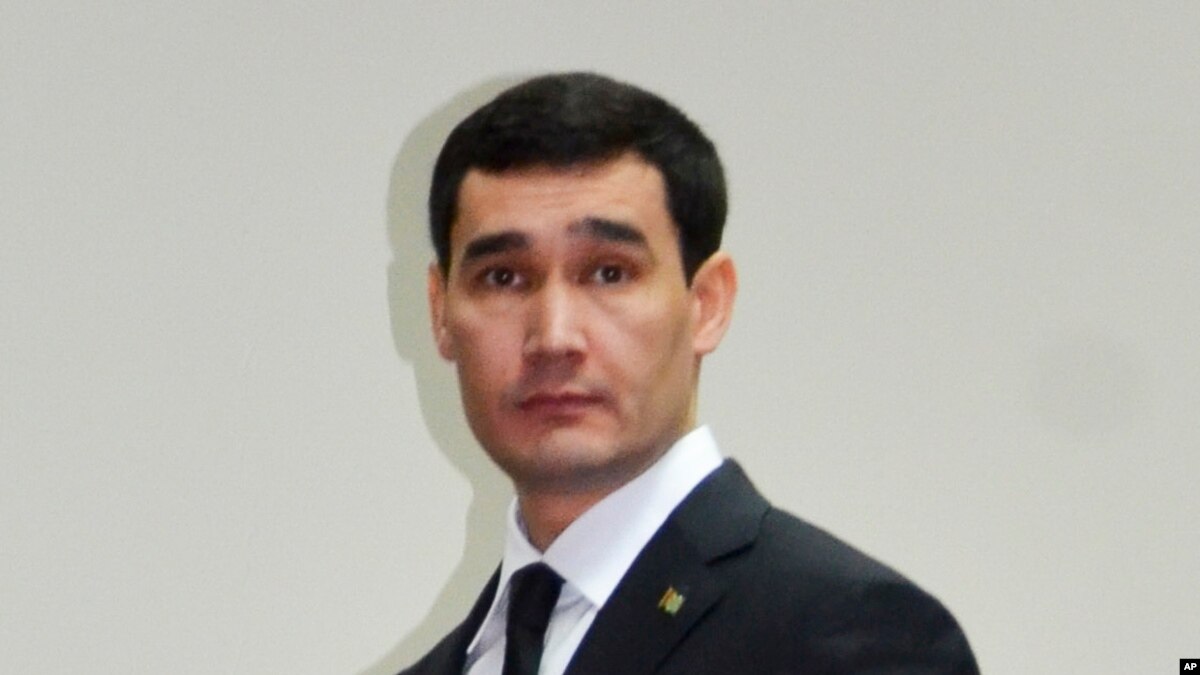
The son of Turkmenistan's president has been appointed a deputy foreign minister, deepening speculation that the president aims to form a dynastic system of power in the Central Asian nation.
The appointment of Serdar Berdymukhamedov was reported Saturday in the country's official newspaper. The announcement came a week after a parliamentary election that included candidates from three parties and independents, all of them loyal to President Gurbanguly Berdymukhamedov.
Results of the election have not been made public, but the newspaper said the president's son won a seat with 91 percent of the vote.
Since coming to power in 2006, Berdymukhamedov has established a personality cult that reaches all levels of society in the former Soviet republic, styling him as the country's protector.
Read More Authoritarian Turkmen Leader's Son Rises in Foreign Ministry : https://ift.tt/2J9rxejScientists Track Chinese Space Station's Final Hours in Orbit
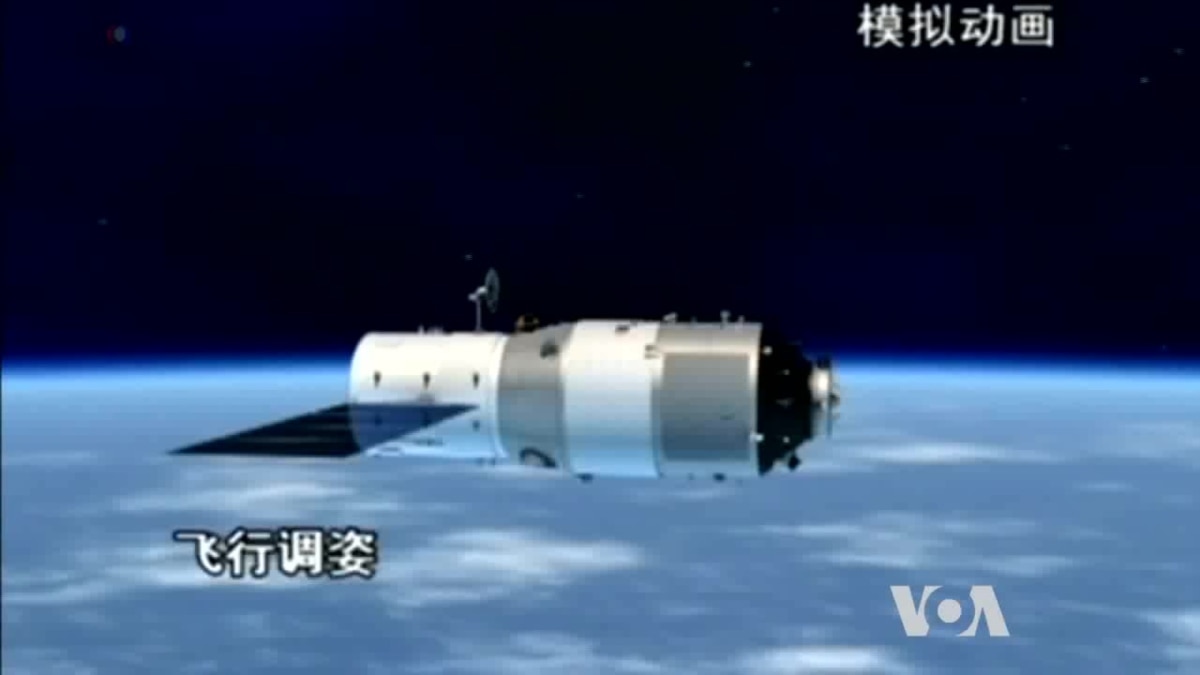
Scientists are monitoring a defunct Chinese space station that is expected to fall to Earth sometime this weekend — the largest man-made object to re-enter Earth's atmosphere in a decade.
The head of the European Space Agency’s debris office, Holger Krag, says China's Tiangong-1 space station likely will fall to Earth Sunday.
Krag said it still not yet known where the space station will hit Earth, but said it would be extremely unlikely for anyone to be injured when it does.
"Our experience is that for such large objects typically between 20 and 40 percent of the original mass, of 8.5 tons, will survive re-entry and then could be found on the ground, theoretically,” he said.
“However, to be injured by one of these fragments is extremely unlikely. My estimate is that the probability to be injured by one of these fragments is similar to the probability of being hit by lightning twice in the same year," Krag added.
China's first space lab, Tiangong-1 — or "Heavenly Palace 1" — was launched in 2011 as a facility for testing docking capabilities with other Chinese spacecraft and to explore the possibilities for building a larger permanent space station by 2023.
Chinese astronauts visited it several times flying aboard the Shenzhou spacecraft.
It was scheduled for a controlled de-orbit and eventual crash into the Pacific Ocean, but in September 2016 China’s space agency conceded it had lost contact with the station.
Krag, says the 8-and-a-half ton craft will re-enter the atmosphere at a speed of 27,000 kilometers per hour.
He said the space station is expected to fall between the areas of 43 degrees south and 43 degrees north, and everything outside that zone is considered safe.
“Northern Europe including France, Germany, Austria and Switzerland are definitely on the safe side. Southern Europe, the southern part of North America, South Asia, Africa, Australia and also South America are still within the zone today," he said.
The re-entry area covers huge parts of the Earth’s oceans, so any surviving pieces of the space station are most likely to end up at the bottom of the sea.
Read More Scientists Track Chinese Space Station's Final Hours in Orbit : https://ift.tt/2pTRsyDAustralian Project to Probe Links Between Head Injuries in Sport, Disease

Researchers in Australia have begun an ambitious task to learn more about the long-term impacts of head injuries suffered by athletes. This week, the Australian Sports Brain Bank was launched in Sydney, and experts are encouraging players who have participated in all levels of sport - whether or not they've had a head injury - to donate their brains to the cause after they die.
The Brain Bank has been set up to investigate links between concussion, head injuries and Chronic Traumatic Encephalopathy, or CTE. It is a neurodegenerative disease found in people with a history of repetitive brain trauma.
The Australian study is being supported by American researchers, who set up a similar brain bank a decade ago.
Dr. Chris Nowinski, head of the Boston-based Concussion Legacy Foundation which has examined the brains of deceased National Football League players, says the presence of CTE among them is pervasive.
“Any contact sport where you receive repetitive brain trauma puts you at risk for this disease. We do not know at what risk but we have seen CTE in 110 of the first 111 players that we have studied, which has really surprised us.”
Nowinski believes energy from blows to the head during competition causes brain tissue to move. Symptoms of CTE include depression, aggression and memory loss, and can take years or decades to appear.
The cause of CTE has yet to be established, but the disease has prompted a class action lawsuit in the U.S.
Australia’s Brain Bank is a joint venture between Sydney University and the city’s Royal Prince Alfred Hospital. It hopes to obtain 500 brains over the next 10 years.
Read More Australian Project to Probe Links Between Head Injuries in Sport, Disease : https://ift.tt/2J9ypYUFriday, March 30, 2018
US Seeks Prison Time for Macau Billionaire in UN Bribery Case
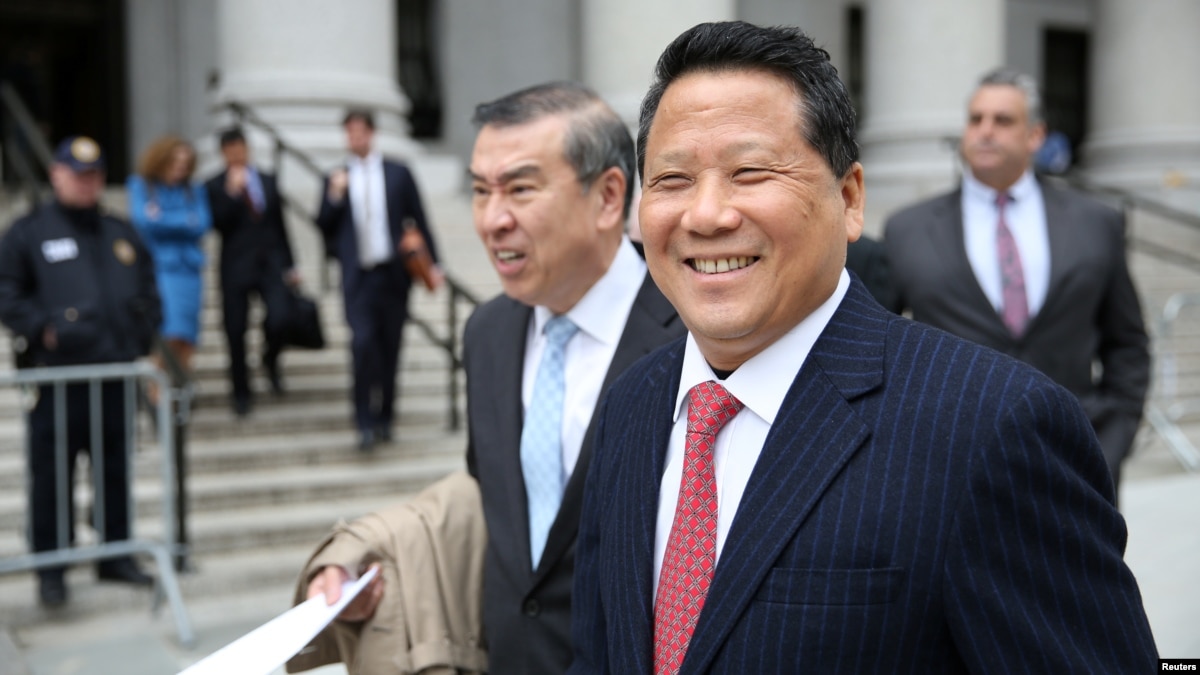
The U.S. government on Friday asked a judge to sentence Macau billionaire Ng Lap Seng to more than six years in prison, after his conviction last July for bribing two U.N. ambassadors to help him build a multibillion-dollar conference center.
Prosecutors made their request in a filing with the U.S. District Court in Manhattan and are also seeking a $2 million fine.
The request came four weeks after Ng’s lawyers urged that their 69-year-old client be sentenced to time served and allowed to return to his family in China.
Lawyers for Ng did not immediately respond to requests for comment. Ng’s sentencing by U.S. District Judge Vernon Broderick is scheduled for May 11. Probation officials recommended a six-year prison term.
Macau project never built
Ng was convicted on all six counts he faced, including bribery, money laundering and corruption, after a four-week trial and less than a day of jury deliberations.
Prosecutors accused him of paying more than $1 million of bribes to officials including the late former U.N. General Assembly President John Ashe.
They said Ng hoped the conference center, which was never built, would pave the way for luxury housing, hotels, a shopping mall, marinas and a heliport, turning Macau into the “Geneva of Asia” and winning himself fame and greater riches.
“The defendant, a sophisticated, international businessman, repeatedly used his wealth and power to seek to corrupt decision-making at the United Nations,” prosecutors said in Friday’s filing. “That was a choice. It warrants substantial and meaningful punishment.”
Defense seeks leniency
Defense lawyers have said Ng’s goals were consistent with the types of public-private partnerships that the United Nations favors, and that other diplomats abused Ng’s trust.
In their sentencing request, they called it “far more reasonable” to conclude that Ng’s motivations were patriotic and philanthropic.
They also said there was “no chance of recidivism,” and that Ng could assure the court that once in China, he would not seek to return to the United States or conduct business there.
Ng has been allowed to live in his Manhattan apartment under 24-hour guard on $50 million bail. He was arrested in 2015.
Read More US Seeks Prison Time for Macau Billionaire in UN Bribery Case : https://ift.tt/2GHrAj6Nobel Winner Malala in Pakistan: 'I've Never Been So Happy'
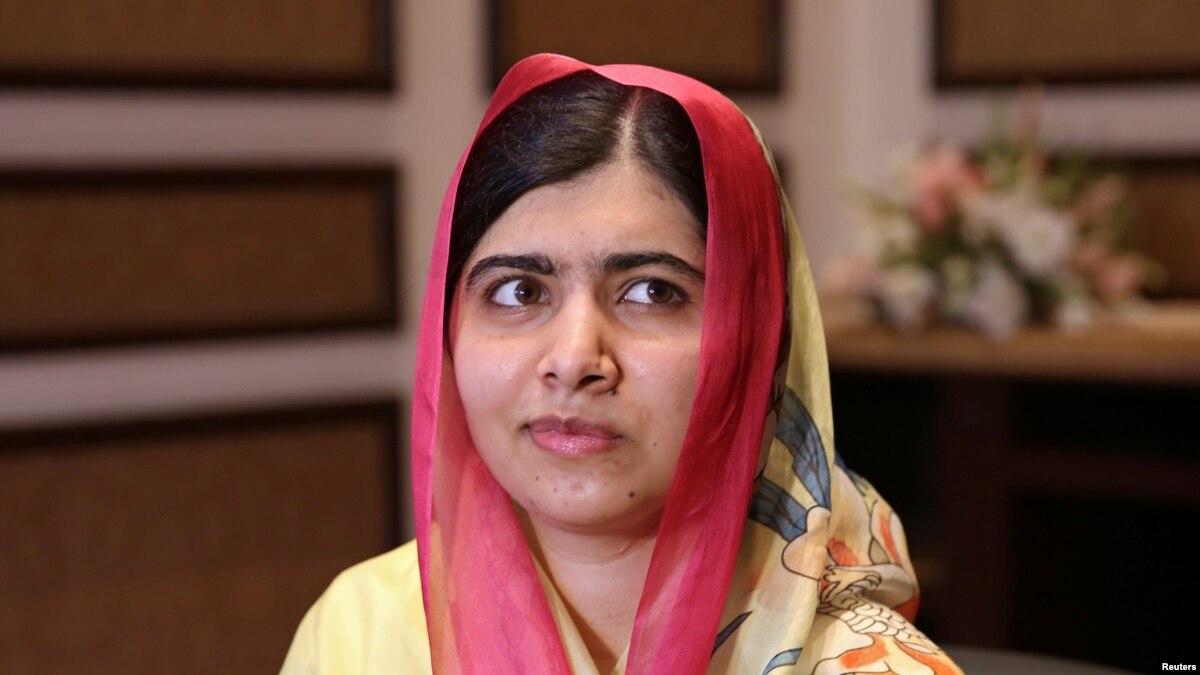
Nobel Peace Prize winner Malala Yousafzai says she has pined for her home in Pakistan's picturesque Swat Valley, even as she recalled two years living
in fear under the Taliban's harsh interpretation of Islamic law.
Visiting her homeland for the first time since a Taliban gunman shot her in the head over her blog advocating girls' education, 20-year-old Yousafzai also contradicted Pakistani critics who accuse her of promoting an ideology at odds with the country's Islamic values.
"I am proud of my religion, and I am proud of my country," she told Reuters in an interview at her hotel on Friday.
Wearing a rose-printed head scarf and flowing tunic and trousers — one of many outfits family and friends brought her from Pakistan to Britain, where she is studying at Oxford University — Yousafzai said she was elated at being home, though she is still waiting for security clearance to visit Swat.
"I had never been so excited for anything. I've never been so happy before," she said.
"I miss everything about Pakistan ... right from the rivers, the mountains, to even the dirty streets and the garbage around our house, and my friends and how we used to have gossip and talk about our school life, to how we used to fight with our neighbors."
She said she has wanted to return before but, aside from security concerns, there was the hectic pace of school and her entry exams to Oxford, where she began studying last year for a degree in politics, philosophy and economics.
Nobel Prize
Yousafzai's journey to becoming the youngest ever Nobel winner began with the local branch of the hardline Taliban movement taking over her hometown in Swat, about 250 km (160 miles) from the capital, Islamabad, in 2007, when she was 9 years old.
The Tehreek e Taliban Pakistan (TTP) banned television, music and girls' education, and burned about 200 schools, following the example of the 1990s Taliban government in neighbouring Afghanistan, which forcibly excluded women from nearly every aspect of public life.
"I still remember each and every moment, right from the fear while sleeping at night that you might not be alive the next day," Yousafzai said. "The fear that if you are going to school, someone might stop you and throw acid in your face."
Her father was a teacher in a school that educated girls and managed to stay open until early 2009.
After the Pakistani army drove out the Taliban in mid-2009 she became a symbol for girls' education through a blog she wrote for the BBC's Urdu service, which started while the Taliban were still in power, and a documentary "Class Dismissed", that profiled her.
It made her a target. In 2012, a masked gunman boarded her school bus, singled her out and shot her. The Taliban later said it had carried out the attack for her promotion of liberalism.
She was flown to Britain for surgery and has remained abroad since, co-writing a best-selling book "I Am Malala" and starting a foundation advocating girls' education worldwide.
In 2014 she was awarded the Nobel Peace Prize, along with an Indian activist.
Polarizing figure
Though she is perhaps the world's best-known Pakistani, Yousafzai — known almost universally as just "Malala" — is polarizing figure at home, beloved by many but reviled by others.
A group of private schools in Pakistan declared Friday to be "I Am Not Malala Day", for what its spokesman described as her "anti-Islam and anti-Pakistan ideology."
That description puzzles Malala.
"I just don't know anything I've said that makes me anti-Pakistan or anti-Islam," she said. "Islam has taught me the importance of peace. Islam has taught me the importance of education. The first word of Islam, or the first word of the Koran, is 'Iqra' which means 'read'."
Government commitment to education was one of the subjects of her meeting on Thursday with Prime Minister Shahid Khaqan Abbasi, whose government, along with the army, helped arrange her trip, including providing security.
"We did talk about education and I appreciated what he has done, but I think there is a lot more that needs to be done. The government promised 4 percent of GDP for education but only so far has increased it to 2.7," she said.
Meetings with the prime minister — as well as other world leaders — might seem a far cry from a schoolgirl's life in the Swat Valley, but Malala said some aspects of her life, like attending Oxford, were longtime dreams.
"My initial plan was that I would continue my education, I would continue speaking out for the girls who cannot go to school ... and one day once I finish my secondary education, I will apply to Oxford," she said.
"So it was in my plan ... I did not know that this attack would happen and I would move to the UK, but I wanted to focus on Pakistan and continue to do as much as I could for girls education."
Read More Nobel Winner Malala in Pakistan: 'I've Never Been So Happy' : https://ift.tt/2pQOwmmFor One Catholic Parish in China, Division, Confusion as Historic Deal Looms
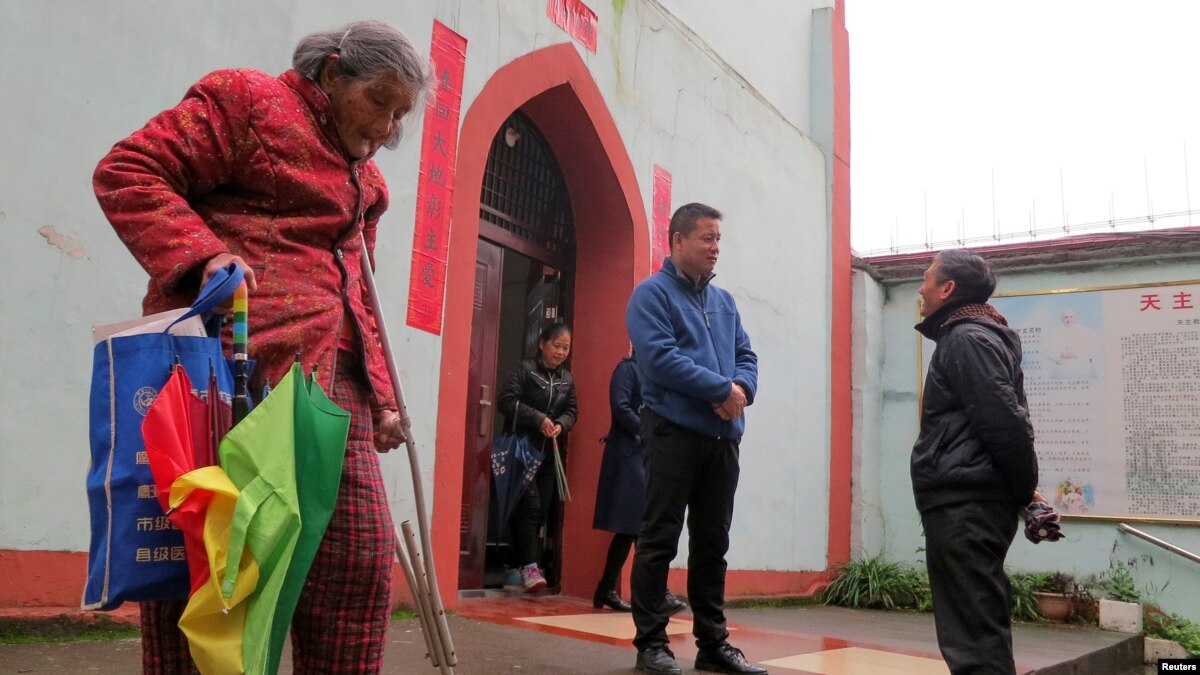
As a member of a so-called “underground” church — one that is not sanctioned by Beijing — in the southeastern province of Jiangxi, Lin and fellow parishioners have for years been attending clandestine Bible readings and services.
In recent years, as Chinese authorities cracked down on underground services as part of broader restrictions on religious groups, he has also started attending services at state-sanctioned churches in order to avoid trouble.
“The pressure on underground church members has been quite big,” said Lin, who lives in Yingtan, a gritty city of one million people in southeastern Jiangxi province.
Now, the deal between China and the Vatican is worrying him.
“Many of us don’t know what to think,” he said. He said that the underground churchgoers wanted more freedom to worship. “But at what cost?”
A senior Vatican source told Reuters last month that a framework accord was ready and could be signed in months. The expected deal would allow China to appoint bishops, in consultation with the Vatican, and eventually could lead to the restoration of full diplomatic relations between the two sides for the first time in seven decades.
Until now, China and the Vatican have not recognized most bishops named by each other. Underground Catholics like Lin have stayed loyal to Vatican-appointed bishops — and the Pope.
News of the impending deal has split communities of Catholics across China, according to some critics like Cardinal Joseph Zen in Hong Kong.
Some fear greater suppression should the Vatican cede greater control to Beijing, but others want to see rapprochement.
“We hope for an early establishment of ties. It will definitely bring advantageous policies, and greater openness to the Church,” said Father Pan Yinbao, a priest affiliated with the official Church in Yingtan, in an interview with Reuters. “There is a need for change. There is a need for adjustment.”
Lin’s apprehensions, meanwhile, are echoed in WeChat groups used by Catholics, and the few uncensored religious news sites still viewable in China like www.tianzhujiao.life — as is cautious criticism.
“Churchgoers stay hopeful on the Vatican-China deal, but no one wants to live in a bird cage or only fighting for a larger space in the bird cage,” read one post by a blogger named Priest Shanren. “People are born to be free.”
The Chinese Communist Party has long sought to control organized groups, including religious ones, whose devotees can only worship under the auspices of state-sanctioned bodies, like the Catholic Patriotic Association.
Of the 146 bishops now in China, about a third are affiliated with the underground church.
A source close to the Vatican based in Hong Kong said that there would be a tightening of religious freedoms following a restructuring of China’s religious affairs authority this year, to bring it directly under party, rather than state control.
A Chinese government statement explaining the move said it would help China “steadfastly persevere in the direction of Sinicizing our country’s religions”.
This week, Guo Xijin, a bishop in the southeastern province of Fujian was detained by authorities for refusing to officiate Easter services with an official bishop. Guo, who is reportedly one of two Chinese bishops the Vatican has asked to retire or accept demotion to make way for a Beijing-backed one, couldn’t be reached by Reuters for comment.
Some critics and Chinese Catholics say rapprochement between Beijing and the Vatican could drive an even deeper wedge between the faithful in China, and engender some bitterness toward the Vatican.
Torn loyalties and factions
Those divisions are evident in places like Jiangxi province, where there are factions even within the underground Church.
When the province’s then 92-year-old Vatican-appointed bishop, Thomas Zeng Jingmu, retired in 2012, one faction, led by a relative, split from another underground faction loyal to the Vatican’s appointed successor, Bishop John Peng Weizhao.
The faction loyal to Peng, which now has at least six priests leading underground Masses, is likely to remain opposed to any deal and lead to the erosion of the Vatican’s authority, according to a source with close ties to underground Catholics in Jiangxi’s three dioceses.
She said that some devout Catholics across China were prepared to cut ties with the Vatican over a deal. “If they’re abandoned by the Vatican they’ll pray to God themselves at home,” said the source who declined to be named given the sensitivity of the matter.
“The Vatican has done the calculations and they feel it doesn’t matter if they abandon the underground, because they are a relatively small group, and will sooner or later fade away.”
Peng, who was detained by authorities for six months in 2014, couldn’t be reached for comment.
Archbishop Paul Gallagher, the Vatican’s equivalent of a foreign minister, said at a conference on Chinese Catholicism in Rome, that while the faithful in China had experienced “great suffering” in the past, the country was seeking to regain a central position in the world and so efforts should be made to forge Catholicism with “Chinese forms.”
Religious spin
While some dioceses in coastal Fujian and in inland Hebei have large clusters of underground Catholics, Jiangxi's are less influential. Many in the area, including 62-year-old Liu Ande, have switched to the official Church.
“We are sons and daughters of God but for our country, we must listen to the leaders here,” Liu said after a Sunday Mass at the official Catholic church in Yingtan.
The church is a shabby building in need of paint wedged into a residential courtyard with several cracked windows, where 48 mostly elderly Catholics listened to a sermon by Father Pan.
After Mass, on the steps of the church, some of the tensions of the impending deal were laid bare.
Liu asked Pan to verify if the Vatican had asked another Bishop in southern China besides Guo, to step down.
“Is it true? We’ve heard it’s true? It should be true,” said Liu. “Everyone is opposed to this.”
But Pan, the official priest, now dressed in a blue fleece jacket after mass, disputed the standoff.
“Whether it’s true or not isn’t clear,” he told Liu, who began nodding. “There’s a lot of news on the internet.”
Another worshipper dressed in a pink coat, who would only give her surname as Li, said she would be praying for a better tomorrow.
“If you’ve done bad things, you must then try to do lots of good things,” she said. “There shouldn’t be tensions,” she added. “We are all just trying to save our own souls.”
Read More For One Catholic Parish in China, Division, Confusion as Historic Deal Looms : https://ift.tt/2pSxwuTSenior Afghan Provincial Parliament Member Assassinated
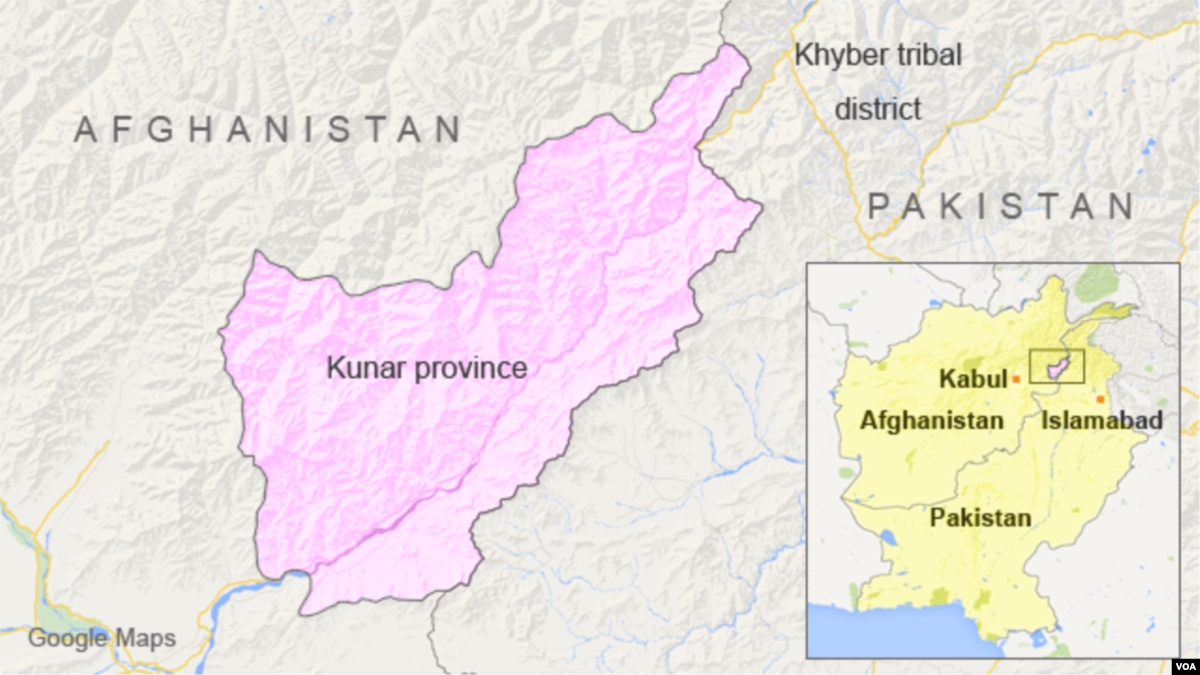
A suicide bomb blast in Afghanistan's eastern Kunar province Friday killed at least two people, including a senior provincial member of parliament.
Afghan officials identified the slain politician as Shah Wali Hemat, saying he was walking to join a nearby funeral procession in the district of Wattapoar when the bomber intercepted him and detonated his vest.
The blast also killed a local religious scholar accompanying Hemat and wounded several other people, said witnesses and officials.
There were no immediate claims of responsibility for the attack.
Kunar, which borders Pakistan, is one of several Afghan provinces where both Taliban insurgents and Islamic State militants actively operate.
Read More Senior Afghan Provincial Parliament Member Assassinated : https://ift.tt/2GD4WrVIn Philippines, Devotees Re-Enact Good Friday Crucifixions

Filipino Roman Catholic devotees, including a woman, were nailed to wooden crosses in a gory Good Friday re-enactment of Jesus Christ’s sufferings that was watched by thousands of spectators but frowned upon by church leaders.
At least three of eight devotees wearing crowns of twigs were crucified by midafternoon by villagers north of Manila who were dressed as Roman centurions.
The spectacle in San Pedro Cutud village reflects a unique brand of Catholicism that merges church traditions with folk superstitions. Many of the mostly impoverished penitents undergo the ritual to atone for sins, pray for the sick or a better life, or give thanks for what they believe were God-given miracles.
Church discourages ritual
The Lenten rituals are frowned upon by church leaders in the Philippines, Asia’s largest Roman Catholic nation, especially if the event is used to boost tourism and business. The re-enactments of the crucifixion, however, have persisted and became an awaited tourist attraction in the largely unknown village in Pampanga province, about 80 kilometers (50 miles) north of the capital.
While the crucifixions have become a summer tradition to locals, they still leave many foreign tourists bewildered.
“It’s terrible,” Luke Henkel from Florida said. “You wanna stop it.”
Mayor Edwin Santiago of San Fernando, the city where San Pedro Cutud lies, said more than 400 police officers were deployed and first-aid stations set up to look after the huge crowds.
“We provide assistance because we can’t stop the influx of tourists,” Pangilinan said. “We don’t promote it as a festival but it’s rather a show of respect to a local tradition.”
Tourists and commerce
Villagers used the crowd-drawing events to peddle food, water, fans, umbrellas and souvenirs and rent out parking slots and toilets. A leading cellphone company provided tents for shade with its name embossed on them.
Archbishop Socrates Villegas said it’s best for Catholics to mark Lent in prayers and acts of love and charity.
“Instead of spilling your blood on the streets, why not walk into a Red Cross office and donate blood? Choose to share life. Share your blood,” Villegas said in remarks posted in a Catholic church website.
Before the crucifixions, dozens of male penitents walked several kilometers through village streets, beating their bare backs with sharp bamboo sticks and pieces of wood. Some of them had their backs cut to keep them bloody.
Read More In Philippines, Devotees Re-Enact Good Friday Crucifixions : https://ift.tt/2GBVu8nThursday, March 29, 2018
Magnitude 6.9 Quake Reported Off Papua New Guinea's Coast
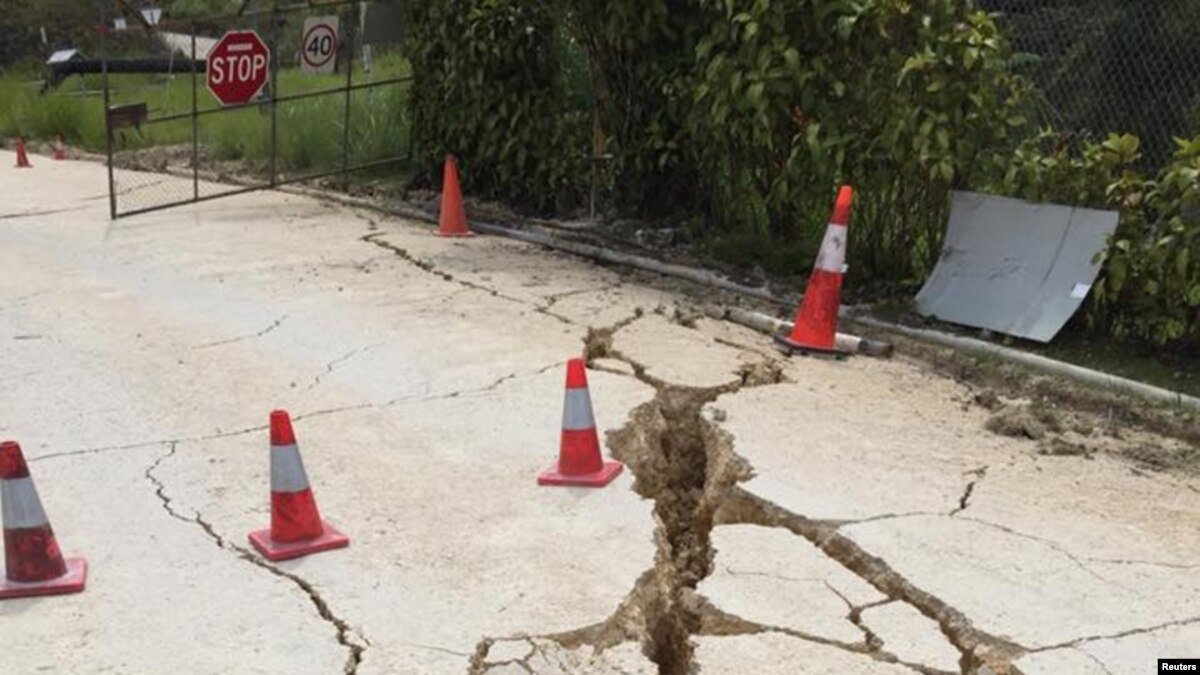
A magnitude 6.9 earthquake struck off the southern coast of Papua New Guinea's New Britain island on Friday, initially triggering a tsunami warning for surrounding coastlines, but there were no immediate reports of
casualties or damage.
The shallow quake struck close to the coast, around 100 miles (162 kilometers) southwest of Rabaul — a much more remote region than the country's mountainous mainland highlands, where a magnitude 7.5 tremor struck on February 26, killing 100 people.
The Pacific Tsunami Warning Center issued a threat warning for the country's coastline located within 300 kilometers of the quake's epicenter, but later advised that the threat had passed.
Dellie Minding, a receptionist at the Rabaul Hotel in the east of New Britain, around 20 minutes from the coast, told Reuters that the earthquake was felt, with many guests running outside, but there was no damage.
At the Rapopo Plantation Resort on the coast, receptionist May Dovon said she had not heard of any casualties or damage.
"We felt the earthquake. Everything was moving, so we went out of the building," Dovon told Reuters. "Nothing was damaged."
Australian authorities said there was no threat to the Australian coastline from the quake, which was initially reported as a magnitude 7.2.
Quakes are common in Papua New Guinea, which sits on the Pacific's "Ring of Fire," a hot spot for seismic activity because of friction between tectonic plates. Rabaul lies in the shadow of Mount Tavurvur, an active volcano that destroyed the town in 1994 during a severe eruption.
The latest quake came as Papua New Guinea struggles to get aid to survivors of the February 26 quake, which flattened whole villages and spoiled water supplies on the country's main island.
The impoverished country is also missing its largest revenue earner since the quake forced a shutdown of Exxon Mobil Corp.'s liquefied natural gas project, which has annual sales of $3 billion at current LNG prices. The company was still assessing quake damage at its facilities.
Read More Magnitude 6.9 Quake Reported Off Papua New Guinea's Coast : https://ift.tt/2GmhncATrump Threatens to Hold Up Revised US-Korean Trade Deal

One day after calling it a “great deal for American and Korean workers,” President Donald Trump threatened to hold up a renegotiated trade deal between Washington and Seoul.
Trump told an audience Thursday in Ohio that he may postpone implementing the agreement until after a denuclearization deal is made with North Korea.
He called the updated trade pact with the South “a very strong card and I want to make sure everyone is treated fairly.”
Trump gave no details on his strategy of holding up the trade deal or what kind of leverage he is expecting from Seoul as he gets ready for an expected summit with North Korean leader Kim Jong Un sometime before May.
“We're moving along very nicely with North Korea. We’ll see what happens. Certainly, the rhetoric has calmed down just a little bit,” Trump said Thursday.
Trump had threatened to pull out of the Korea-U.S. Free Trade Agreement, calling it “horrible” for U.S. workers and manufacturers.
But U.S. and Korean negotiators announced this week a revised deal. It exempts South Korea from the new stiff tariffs on steel exports to the United States, while limiting Korean steel shipments.
The revised agreement also will give U.S. carmakers more access to Korean markets.
The North and South Korean leaders plan to hold their own summit in April.
Read More Trump Threatens to Hold Up Revised US-Korean Trade Deal : https://ift.tt/2pRA7GkNew Political Party Emerging in Post-Islamic State Raqqa

A new political party announced its establishment in Syria, March 28, 2018. The Future Syria Party, formed in the city of Raqqa, advocates for a pluralistic Syria. VOA's Mahmoud Bali reports from Raqqa, the former self-proclaimed capital of the Islamic State terror group.
Pakistan Tests Sub-Launched Nuclear-Capable Cruise Missile
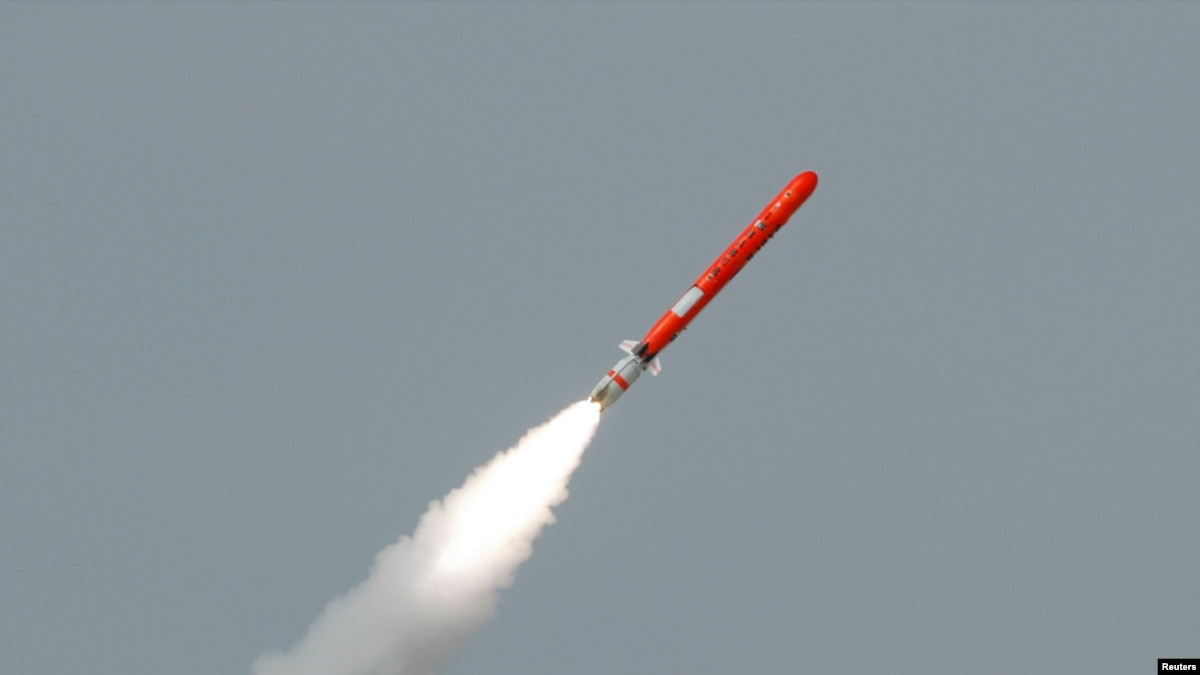
Pakistan announced Thursday that it had successfully conducted another test-firing of a nuclear-capable, submarine-launched cruise missile (SLCM), which has a range of 450 kilometers.
The indigenously developed Babur missile was fired from an underwater platform and "engaged its target with precise accuracy," a military statement said.
The rocket is capable of delivering "various types of payloads" and provides Pakistan a "credible" second-strike capability.
Military spokesman Major-General Asif Ghafoor, while referring to the country's archrival India, said the development of Babur was a response to "provocative nuclear strategies and posture being pursued in the neighborhood." He also released some footage of the testing.
WATCH: Footage of Test-Firing From Pakistan Army
Pakistan said its nuclear and missile development programs are India-specific and have effectively deterred the bigger neighbor, with its larger military power, from imposing another war on the country.
"When it comes to responding to India for their threat, anything and everything that we have is for them and for nobody else," Ghafoor told reporters a day earlier.
Military tensions are running high over the divided Kashmir region, which has caused two of the three wars between nuclear-armed India and Pakistan.
Both South Asian nations are locked in almost daily skirmishes along the Line of Control, which separates Pakistan's portion from the Indian-ruled two-thirds of the Himalayan region.
Meanwhile, earlier this week the United States imposed sanctions on seven Pakistani companies for alleged links to the nuclear trade.
The Commerce Department's Bureau of Industry and Security (BIC) places those companies on its Entity List, which the U.S. uses to identify foreign parties that are "acting contrary to the national security or foreign policy interests of the United States," the BIC website explains.
Read More Pakistan Tests Sub-Launched Nuclear-Capable Cruise Missile : http://bit.ly/2Ie3XvrPakistan: 'Dossier' About Terrorist Acts Shared with Afghanistan
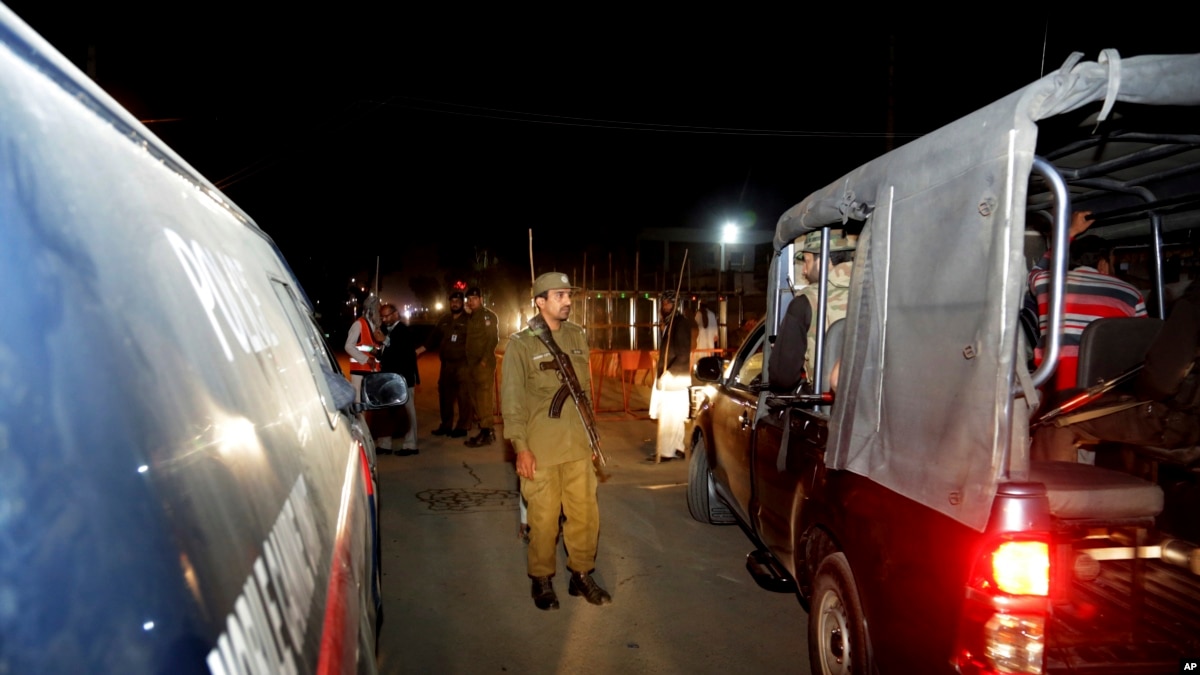
Pakistan said Thursday it has given a “dossier” to Afghanistan containing evidence that fugitive militants are using the neighboring country for terrorist attacks against Pakistani security and civilian targets.
The move came as a senior American diplomat, Alice Wells, arrived in Islamabad for “several says” of talks with Pakistani officials on how to promote peace and stability in Afghanistan.
Foreign Ministry spokesman Mohammad Faisal says the dossier was delivered through the Afghan embassy in Islamabad. It contained proof that a recent deadly suicide bombing of a military base in the northwestern Swat district was plotted by the outlawed Pakistani Taliban operating in Afghanistan.
The bomb blast early last month killed at least 11 Pakistani soldiers and wounded 13 others.
Faisal said that evidence also has been provided to Afghan officials about several other terrorist groups, including Jamaat-ul Ahrar, or JuD, maintaining “hideouts” on the other side of the largely porous border between the two countries.
Seeking action
He said Kabul has been asked to take action against the terrorist hideouts being used for “financing, planning and undertaking cross-border terrorist attacks” on Pakistani military posts, cities and towns.
“We have shared the locations of the safe heavens of these groups with Afghan and the U.S. authorities on many occasions, however, our concerns have not yet been fully addressed. This issue has been addressed in some locations where Afghanistan has established its border posts and deployed troops,” Faisal told reporters at his weekly news conference Thursday.
There was no immediate reaction available from the Afghan government to Pakistani assertions.
A Pakistan military spokesman, Major-General Asif Ghafoor, revealed a day earlier that security forces recently have arrested 16 would-be suicide bombers, including nine Afghans. Ghafoor said all the bombers had come from Afghanistan to carry out terrorist activities.
A U.S. drone strike earlier this month in an Afghan border region killed at least 21 fighters and commanders of the Pakistani Taliban, a move Islamabad welcomed.
Afghan authorities, for their part, have been accusing Pakistan’s military institutions of supporting and harboring sanctuaries of the Taliban and its allied Haqqani network that is waging deadly attacks on Afghan and U.S.-led international forces in the country.
Bilateral talks
The allegations and counter allegations come as Pakistani Prime Minister Shahid Khaqan Abbasi is scheduled to visit Kabul next week at the invitation of President Ashraf Ghani for bilateral talks on reducing tensions, and improving trade and economic ties.
The Trump administration has been pressing Islamabad to take decisive action against alleged Afghan Taliban sanctuaries on its soil and also recently suspended military assistance to Pakistan until it delivers on counterterrorism pledges.
Officials in Islamabad reject the charges, saying no insurgent hideouts exist on their side of the border. Tensions in bilateral ties have deteriorated in recent months. Both sides insist, however, a diplomatic re-engagement has been underway to address mutual concerns.
The State Department's Wells is in Pakistan where she has held talks with senior officials on developments in Afghanistan. Spokesman Faisal said Ambassador Wells held a meeting Thursday with Foreign Secretary Tehmina Janjua.
The discussions are focused on issues including Pakistan’s counterterrorism efforts and the regional situation in Afghanistan in the wake of U.S. President Donald Trump’s South Asia policy, Faisal said.
“The two countries are maintaining regular engagement to address the common challenges and take the relationship forward,” the spokesman said.
Read More Pakistan: 'Dossier' About Terrorist Acts Shared with Afghanistan : https://ift.tt/2GU6ifMAs Vietnam Clamps Down, Hanoi Artist Sings Out

She’s talked shop with President Barack Obama and is soon to be the subject of a feature documentary. Mai Khoi, an outspoken musician who has become a thorn in the side of the Vietnamese government, was detained Tuesday after refusing to shut up about human rights amidst a widening crackdown on dissent in the country. David Boyle reports from Hanoi.
Chinese Pill Factories Fuel Opioid Crisis in America’s Heartland

On a freezing January night, Bailey Henke, 18, of Grand Forks, N.D. died in yet another tragic case of opioid overdose in America. Authorities later traced the pill he swallowed to a fentanyl factory in China – one the world’s top sources of the illegal drug. VOA traveled to America’s Heartland to see how Henke’s family, friends and the community are grappling with the deadly fallout from the Chinese drug supply chain.
North Korean Defectors Worry Nuclear Deal Will Overlook Atrocities
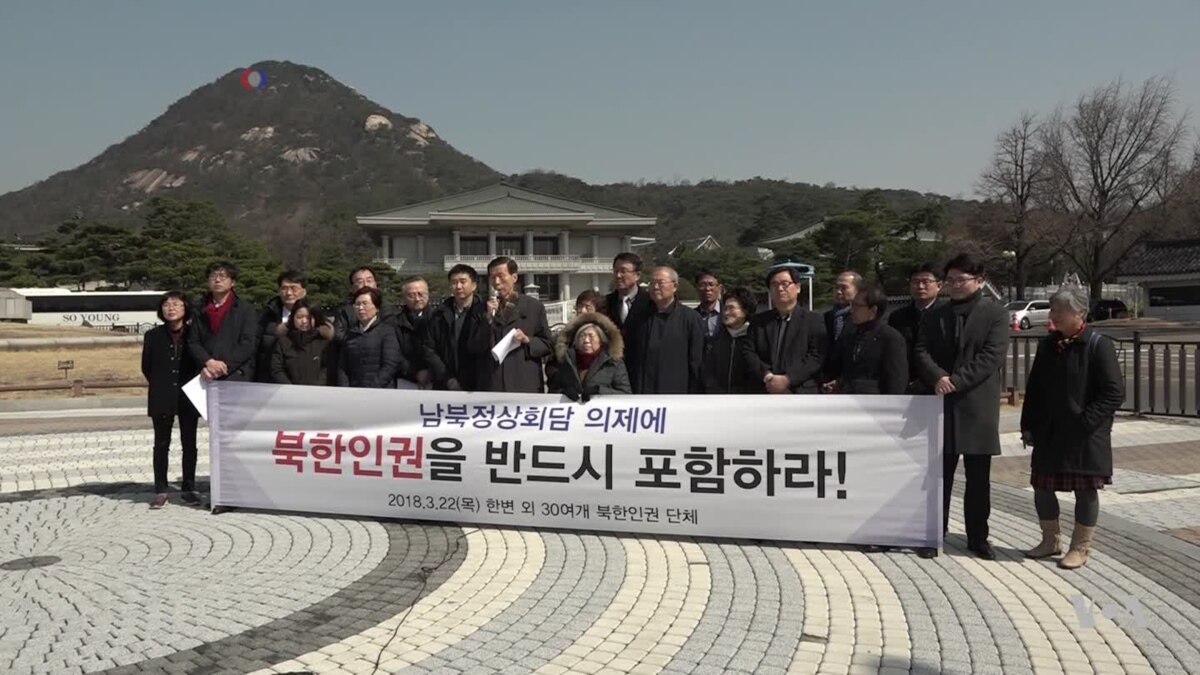
High-level North and South Korea officials held talks at a border village Thursday and agreed on April 27 as the date for an inter-Korean summit. The discussions are the latest in a series of diplomatic initiatives by Pyongyang to resolve an international dispute over the North's nuclear program, including leader Kim Jong Un's surprise visit this week to China and an anticipated meeting with U.S. President Donald Trump in May. But North Korean defectors are voicing concern that the repression and longstanding human rights violations committed by the leadership in Pyongyang will be forgotten during the North's diplomatic "charm offensive." VOA’s Brian Padden reports from Seoul.
Africa Could See World’s First 100-Million-Person City by Century’s End
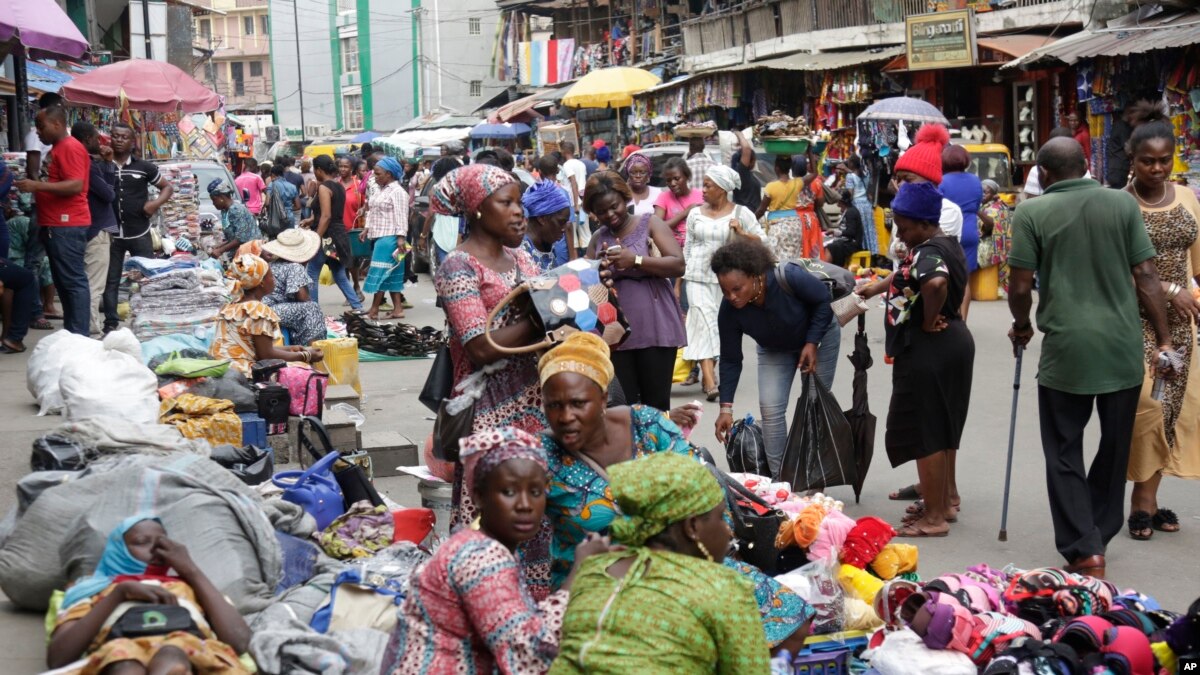
The world could see its first city with a population of 100 million by the end of this century. That is the conclusion of new research into the speed of urbanization in many fast-growing countries in Africa and Asia, which suggests even small cities could balloon into huge metropolises in the coming decades.
By the end of the century, the world’s population is forecast to reach up to 14 billion. Eighty percent of those people will be living in cities, according to new research from the Ontario Institute of Technology.
“We are now seeing the urbanization wave headed through China, it is toward the latter part of its urbanization. And now it is headed for India, and then we will see it culminate in the big cities of sub-Saharan Africa,” co-author and professor Daniel Hoornweg told VOA via Skype.
That could mean the first 100-million population city, and the top candidate is Lagos, Nigeria.
WATCH: Africa Could See World's First 100 Million City by Century's End
Africa and cities
Today its population is 20 million, not the largest, as that accolade belongs to Tokyo with about 38 million people, but one of the fastest growing. In two generations, Lagos has grown a hundredfold. By 2100 it is projected to be home to more people than the state of California.
“Lagos, Dar Es Salaam, Kinshasa: These are the cities that are looking at four- to five-fold increases in population. By the end of the century, the lion’s share of large cities, the top 20 if you will, most of those will be in Africa,” Hoornweg said.
Lagos sprawls across 1,000 square kilometers, an urban jungle of skyscrapers, shanty towns and everything in between. Its population grows by 900 people per day.
The poorest residents, often migrant communities, live in slums by the lagoon. Amnesty International has warned of ruthless forced evictions to make way for new developments, which have left more than 30,000 people homeless and 11 dead.
Oladipupo Aiveomiye lives in the Ilaje-Bariga shantytown.
“The threat of being evicted, the threat of being chased away overnight has gripped people to the extent that they cannot even work or operate in this area,” he said.
Young continent
Across Africa the median age is younger than 20 and the fertility rate is 4.4 births per woman. Even small cities are forecast to balloon in size. Niamey in Niger could grow from less than 1 million today to 46 million by the end of the century; Blantyre in Malawi from 1 million to 40 million.
Asia, too, will witness huge urban growth, with Kabul in Afghanistan projected to hit 50 million people.
Hoornweg says despite the associated problems of slums, poor sanitation and pollution, increasing urbanization can be a good thing.
“Cities, by their nature, because of a more compact lifestyle, can provide a quality of life higher than anywhere else with less energy per unit of GDP,” he said. “So, cities actually provide a really important opportunity. We will not get to global sustainability without big cities.”
Many cities in the West are predicted to plateau or decline in size. By the end of the century, only 14 of the biggest 100 are forecast to be in North America or Europe.
Read More Africa Could See World’s First 100-Million-Person City by Century’s End : https://ift.tt/2GmbB6zAfrica Could See World's First 100 Million City by Century's End
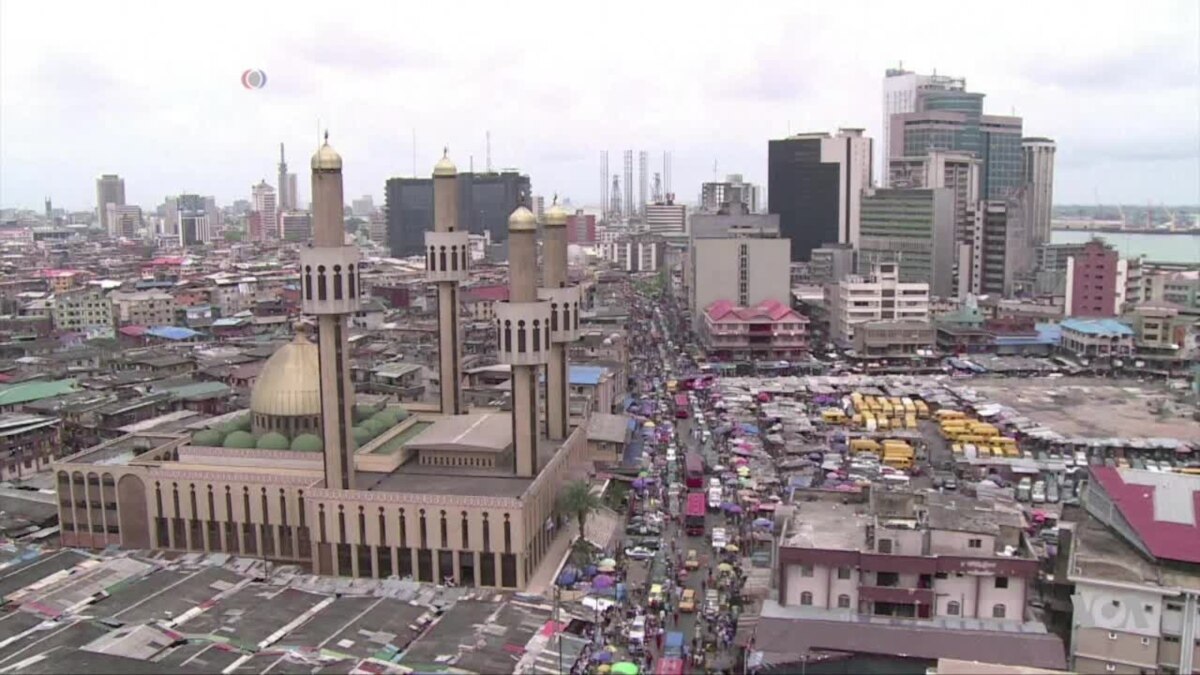
We could see the world's first city with a population of 100 million by the end of this century. That's the conclusion of new research into the speed of urbanization in many fast-growing countries in Africa and Asia, which suggests even small cities could balloon into huge metropolises in the coming decades. Henry Ridgwell has more.
White House Sees Kim Jong Un Visit to China as Positive Step
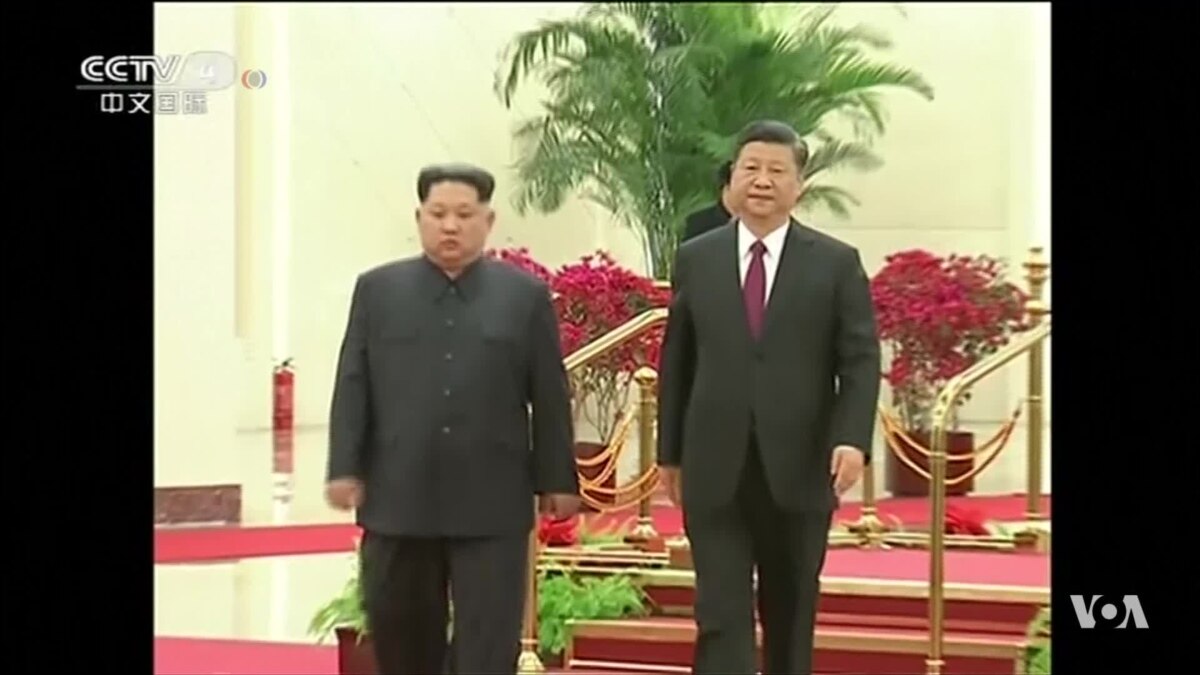
The White House has welcomed a meeting between North Korea's Kim Jong Un and China's Xi Jinping as a positive prelude to potential talks between Washington and Pyongyang. U.S. President Donald Trump however maintains that a maximum pressure campaign against North Korea will continue. Speaking with VOA's Korean Service, an East-Asia expert says the visit was also Kim Jong Un's effort to fortify his position before inter-Korean talks scheduled in April. Jesusemen Oni has more.
Wednesday, March 28, 2018
US, Chinese Scientists Reintroduce Pandas to Wild

The giant panda is an icon in China. But fewer than 2,000 remain in the wild, most of them in the mountains of China's Sichuan, Shaanxi and Gansu provinces.
Scientists at the Chengdu Panda Base in Sichuan province have been working for years to increase the captive panda population. Now a new documentary Pandas tells of a program to introduce some of those cubs into the wild.
Black bear example
Wildlife biologist Huo Rong from Chengdu worked with naturalist and author Ben Kilham, who specializes in releasing orphaned black bears into the wild.
“Huo Rong has been here to visit a couple times and met the black bears," Kilham said. "It was her first trip here meeting the black bear cubs that made her realize that this could be done with pandas."
The film shows how Huo Rong, Kilham and American wildlife biologist Jake Owens worked to choose and prepare a female panda cub named Qian Qian.
The film was written and co-directed by Drew Fellman, who had been working with Global Cause, a U.S.-based nonprofit that works alongside the Chengdu panda research base to save the endangered animals.
Fellman was familiar with Kilham's work with black bears and wanted to document his work with pandas. The filmmaker told VOA his first challenge was to build the trust necessary among the participants for the film to be shot.
“We had to gain their trust and also they had to gain our trust a little bit as well," Fellman said. "You know, we wanted to make sure that they would actually give us the access that we needed to make the film and they wanted to make sure that we would tell their story honestly."
For two years, wildlife biologist Owens worked with Qian Qian in the bamboo forests of Chengdu. Eventually, the day came when she left the captive panda enclosure for the first time. Owens told VOA that building the team and working with the Chinese scientists had one goal: helping to increase the number of wild pandas.
“That’s the whole point of this project is to get pandas that are born from captive-born mothers and born in a human care facility and then get them to transition out into the wild,” Owens said.
IMAX Format
Pandas is shot in IMAX 3-D, which co-director Fellman says puts audiences in the action.
"We want to bring the audience into the environment so you have the same experience the scientists do working with the pandas. You're not just looking at pandas, you feel like you're in the space with them," he said.
Owens says the project is ongoing and he hopes the film inspires others to work to save endangered species.
"I think it shows the kind of opportunities that are available," he said. "For young kids to get excited and really be in the film -- hopefully people will see 'oh this is something exciting and interesting and I'd like to get into it and save some other species,"he added.
The film opens in the U.S. April 6.
Read More US, Chinese Scientists Reintroduce Pandas to Wild : https://ift.tt/2GSeYTKThailand to Give the Beach from 'The Beach' Movie a Breather

Authorities in Thailand have ordered the temporary closing of the beach made famous by the Leonardo DiCaprio movie “The Beach” to halt environmental damage caused by too many tourists.
Maya Bay, on Phi Phi Leh island in the Andaman Sea, will be closed to all visitors for four months annually starting this June to allow for the recovery of the island's battered coral reefs and sea life. The decision to keep visitors away was made Wednesday by Thailand's National Parks and Wildlife Department.
Many Thai marine national parks are closed from mid-May to mid-October, but because of tourist demand, Maya Bay has remained open year-round since a Hollywood crew set foot there in 1999 to film the dark backpacker tale based on a novel by Alex Garland.
The beach receives an average of 200 boats and 4,000 visitors each day.
Recent surveys by a team led by marine biologists found a large part of the coral reefs around the area is gone and sea life has virtually disappeared.
“It's like someone who has been working for decades and has never stopped,” said Thon Thamrongnawasawat, a prominent marine scientist and member of Thailand's national strategy committee on environment development. “Overworked and tired, all the beauty of the beach is gone. We need a timeout for the beach.”
Thon said the temporary closing will kick-start the rehabilitation process.
“If you ask me if it is too late to save our islands, the answer is no. But if we don't do something today, it will be too late,” said Thanya Netithammakum, head of the National Parks and Wildlife Department.
When Maya Bay reopens, the department will set a daily limit of 2,000 tourists, while boats will no longer be allowed to anchor there and will have to dock on the opposite side of the island at floating piers.
The number of visitors the beach has been seeing is unsustainable, and a temporary closure is better than nothing, Thon said.
“The locals know that and we all know that,” he said. “This would be a good way to start managing our tourist destinations. And we can improve on what we learn after the first year. We know that it's important we manage our resources well. It's not about more numbers of tourists but about sustainable tourism that benefit locals as well.”
More than 35 million tourists visited Thailand last year, compared to around 10 million when “The Beach” premiered in 2000.
Thai authorities have in the past closed off islands ruined by mass tourism. Koh Yoong, part of the Phi Phi island chain, and Koh Tachai, in the Similan Islands National Park, have been off limits to tourists permanently since mid-2016.
Thon, who surveyed both islands recently, said the results have been amazing. Areas with a bleak sea life environment and coral bleaching are now teeming with robust and colorful sea life and coral, he said. He's certain that the annual closure will also help restore Maya Bay.
“I have always dreamt that one day we could work to bring her back to life. I have been following and working on Maya Bay for more than 30 years. I had seen it when it was a heaven and I see it when it has nothing left. Anything that we can do to bring this paradise back to Thailand is the dream of a marine biologist,” he said.
Read More Thailand to Give the Beach from 'The Beach' Movie a Breather : https://ift.tt/2IbA8vLNorth Korea Leader Visits China
[unable to retrieve full-text content]
North Korean leader Kim Jong Un visited China this week on an unofficial visit, China's state news agency Xinhua reported on Wednesday. It was the reclusive leader's first foreign trip since taking power in 2011. Read More North Korea Leader Visits China : https://ift.tt/2pMUSSNHong Kong's Skyline Farms Harvest More Happiness than Food
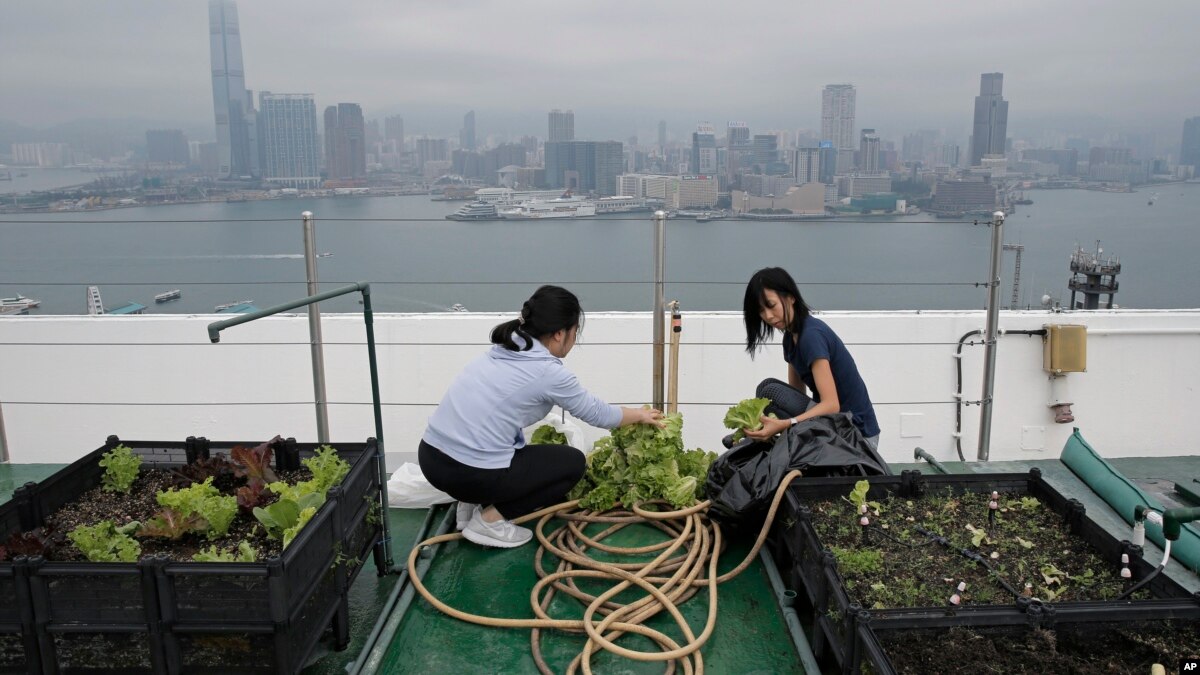
High above downtown Hong Kong's bustling, traffic-clogged streets, a group of office workers was toiling away not on a corporate acquisition or a public share offering but on harvesting a bumper crop of lettuce atop one of the skyscrapers studding the city's skyline.
It's rooftop farming taken to the extreme, and more about reaping happiness than providing food.
The volunteers were picking butter lettuce, Indian lettuce and Chinese mustard leaf in rows of low black plastic planters on a decommissioned helipad on the 146-meter (480-foot)-high roof of the 38-story Bank of America tower, the scenery: a vertiginous panorama of glass office towers framed by lush mountain peaks and Victoria Harbor.
"It's pretty dirty but still I really enjoy it,'' said Catherine Ng, one of five volunteers who work for the property company managing the tower.
The farm is run by Rooftop Republic, a three-year-old startup whose founders are tapping growing interest in organic food and taking advantage of unused roof space in the cramped, high-rent Chinese city.
Hong Kong, with its skinny office blocks and apartment towers and busy, affluent residents, might seem an unlikely place for rooftop farming to catch on. The finance and trading hub has rural suburbs, but farming only takes up 700 hectares (1,730 acres) of its land and agriculture accounts for 0.1 percent of its economic output. Rooftop Republic's founders say the appetite for their services is growing among Hong Kongers who are seeking a more sustainable lifestyle and concerned about where their food comes from.
"We have been getting more and more interest from people who want to grow their own food,'' said Michelle Hong, one of the founders. "A lot of it is triggered by concerns about food safety and the realization that a lot of the food they consume might be laden with pesticides. I think people want to have more control and also more trust.''
Hong Kong imports almost all of its food, much of it from mainland China. Public awareness about food safety in the former British colony has risen after countless food contamination scandals on the mainland.
Rooftop Republic has set up on average one farm a month since its founding and now manages 36 covering more than 30,000 square feet (about 2,800 square meters), including one in mainland China, Hong said. It also provides workshops for companies, building owners, schools, and community groups.
Expansion
The Bank of America farm was a milestone because it was the first in the city's financial district. The company has since set up two more in the area and is looking at a few more sites, Hong said. Vegetables from the tower are donated to a food bank for uses in lunch boxes distributed to the needy. Some of its other farms are at hotels or restaurants, which use the herbs, eggplants and melons for dishes on their menus.
Plenty of other groups or individuals have started cultivating their own rooftop vegetable gardens, said Matthew Pryor, a Hong Kong University architecture professor who has counted at least 60 and thinks there are a lot more he doesn't know about.
Pryor's research found approximately 1,500 rooftop farmers in the city, cultivating a total area of about 1 { hectares. He thinks there's potential for that to easily grow to 50,000 people working on a suitable rooftop area of 600 hectares.
He helped set up a farm on top of a university building where volunteers, mainly staff, grow tomatoes, potatoes, strawberries, lettuce, dragonfruit, papaya, beans, peas and squash.
Pryor said he discovered through his research that their main product isn't edible.
"The rooftop farms here produce virtually nothing'' compared to Hong Kong's overall consumption, Pryor said. "What they do produce, however, is happiness, and this social capital that they generate is enormous.''
The farms can help stressed-out, overworked and socially isolated Hong Kongers be happier and improve their well-being by letting them hang out with their friends and commune with nature.
Those benefits were on display at another Rooftop Republic farm at airline Cathay Pacific's headquarters near the city's airport on rural Lantau Island.
Airline staff planted crops that thrive in Hong Kong's cool, dry winter growing season, like kale, cabbage, radishes and carrots, which they can take home.
"We're right by the sea, we have great views of the harbor, at the same time have got great views of the airport. We see planes every two minutes,'' said volunteer Prian Chan. "So it's awesome to be here.''
Read More Hong Kong's Skyline Farms Harvest More Happiness than Food : https://ift.tt/2GgYmnyMalaysian Protesters Demonstrate Against Proposed New Electoral Map
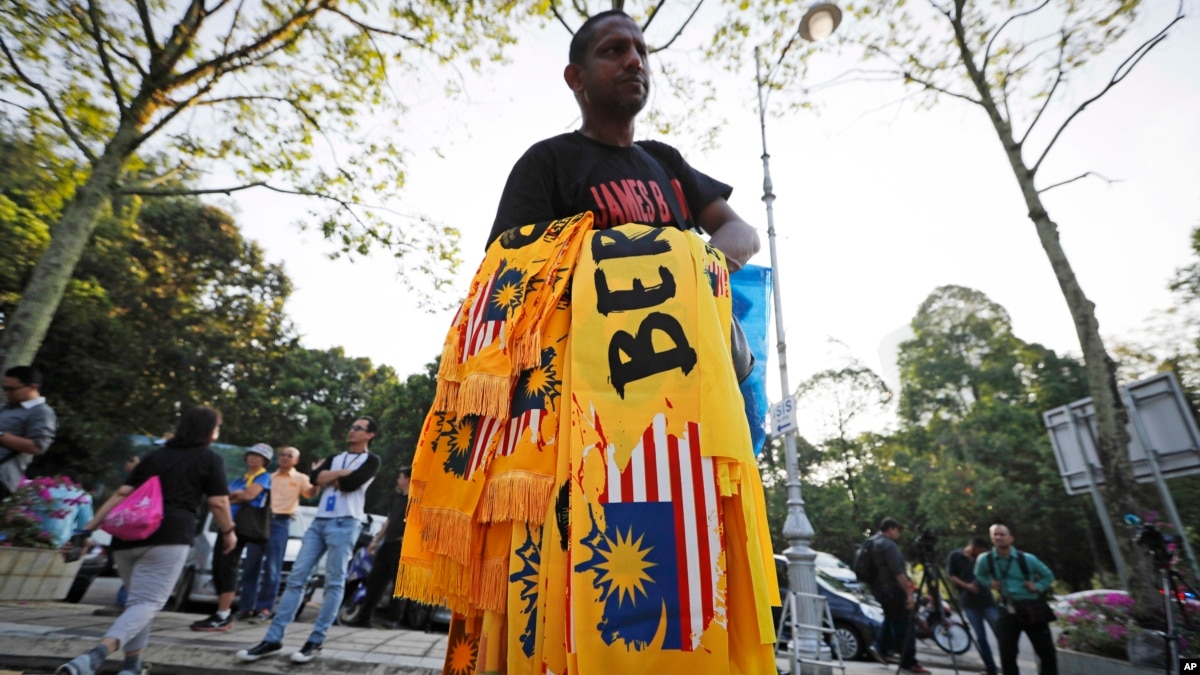
Hundreds of demonstrators gathered in Kuala Lumpur Wednesday to protest a controversial electoral plan they say would benefit embattled Malaysian Prime Minister Najib Razak's ruling coalition ahead of an upcoming general election.
The protesters, clad in the yellow-color shirts that signify Malaysia's opposition forces, marched to the gates of Parliament before they were stopped by anti-riot police.
Opposition leaders say the plan will change electoral boundaries that will push opposition-leaning voters into larger constituencies, creating larger districts packed with more distinct ethnic majorities.
Prime Minister Najib will present the plan before lawmakers on Wednesday, where it is expected to easily pass in the 222-seat parliament.
Najib has been plagued by a multi-billion dollar financial scandal involving state-owned sovereign wealth fund 1Malaysia Development Berhad (1MDB). Despite a strong challenge from Mahathir Mohamad, Malaysia's 92-year-old former prime minister and Najib's one-time political mentor, Najib is expected to lead the ruling Barisan Nasional (National Front) coalition to yet another victory later this year. The BN has ruled Malaysia since gaining independence from Britain in 1957.
Read More Malaysian Protesters Demonstrate Against Proposed New Electoral Map : https://ift.tt/2pLhOSmTuesday, March 27, 2018
Afghan Air Force Hits Taliban With Maiden Laser-Guided Bomb

The NATO-led military alliance in Afghanistan announced Tuesday that the Afghan Air Force (AAF) had dropped its first laser-guided bomb on a Taliban compound and had destroyed it.
The Resolute Support Mission said the AAF last Thursday tasked its A-29 light attack aircraft squadron to use the weapon in western Farah province because of the target's close proximity to civilians.
"The drop resulted in a direct hit along the route of a major Afghan National Army clearing operation, marking the first time the AAF dropped a laser-guided bomb in combat," said a mission statement issued in Kabul.
The air action also assisted Afghan soldiers in destroying equipment that the Taliban had stolen.
The statement noted the successful counterinsurgency mission was launched with "minimal adviser input" and it came just three months after the AAF completed training to employ a laser-guided bomb.
U.S. and NATO trainers are helping the Afghan government to improve and expand its air force, which currently has about 8,000 members, with 129 aircraft total.
"That will grow to a force of 11,000; the fleet is expected to triple in size as part of President [Ashraf] Ghani's [national security] road map," according to the statement.
Pilots' skill increasing
U.S. Air Force Brigadier General Phillip Stewart, the general in charge of the effort, acknowledged growing capabilities of the AAF, saying it can effectively engage most of the enemy targets in Afghanistan using nonprecision weapons.
"The Afghan pilots have learned their trade during combat, and our advisers have expanded their skills in a deliberate, step-by-step approach, increasing the Afghan Air Force capability," he noted.
Battlefield activities are due to increase with the advent of spring in Afghanistan. U.S. military commanders anticipate Afghan ground and air forces will do a better job in the coming fighting season while battling the Taliban, who control or contest about 45 percent of the country.
The Afghan government, backed by the international community, also has renewed its efforts to find a negotiated end to the war and recently offered unconditional peace talks to the Taliban. The Taliban, however, have seemingly ignored the overture, raising fears of another bloody year in the 17-year-old war.
Read More Afghan Air Force Hits Taliban With Maiden Laser-Guided Bomb : https://ift.tt/2DZ9HXCAfghan Women Join Anti-War Protest in Helmand, Plan to March to Taliban Base

Afghan women took to the streets Tuesday in Afghanistan’s conservative Helmand province and joined an ongoing man-only sit-in demanding Taliban insurgents stop hostilities.
A deadly suicide car bombing at a sports stadium last Thursday in the provincial capital, Lashkargah, provoked young men to stage the anti-war protest at the site of the attack.
Officials said the blast killed at least 14 people and wounded over 40 others.
Women clad in burqas arrived at the stadium and installed their own tent next to those housing men protesters to add their voice to calls for the insurgents to stop fighting and talk peace.
Many of the women protesters are said to have lost loved ones in the war. Women in ethnic Pashtun-dominated regions of Afghanistan rarely step out of their homes for attending protests.
“We have lost our relatives and we want peace in our province,” a female protester at the rally told reporters.
“Stop making us widows and making us cry over the death of our children,” said another woman at the rally.
Organizers of the first-ever anti-war demonstration in Helmand say they plan to march towards the insurgent-controlled district of Musa Qala on Thursday with a message of peace for the Taliban.
The district is about 90 kilometers from the provincial capital.
Insurgents, they added, have been informed about the planed “long march” with a request to ensure security of the marchers and a response from them is still awaited.
A Taliban official requesting anonymity told VOA his group is looking forward to meeting with and talk to the protesters.
“It is a totally new subject for us. We are studying it and we will meet with these people and listen to their demands and will try to find out why they are making such demands from the Taliban alone,” the insurgent official said
The Taliban controls or contests most of the districts in the largest Afghan province, a major opium-poppy-producing region.
Insurgents routinely carry out battlefield attacks and suicide bombings against Afghan security forces in Helmand and claim responsibility for such acts.
The Afghan government has recently announced an unconditional offer of peace talks to the Taliban to end years of war in the country. But the rebels have ignored the overture.
On Tuesday, an international conference in the neighboring Central Asian state of Uzbekistan voiced strong backing for Kabul’s offer of a peace dialogue and called on the Taliban to accept it.
Read More Afghan Women Join Anti-War Protest in Helmand, Plan to March to Taliban Base : https://ift.tt/2GA8Jq3South Korean President Visits his Troops Training Emiratis
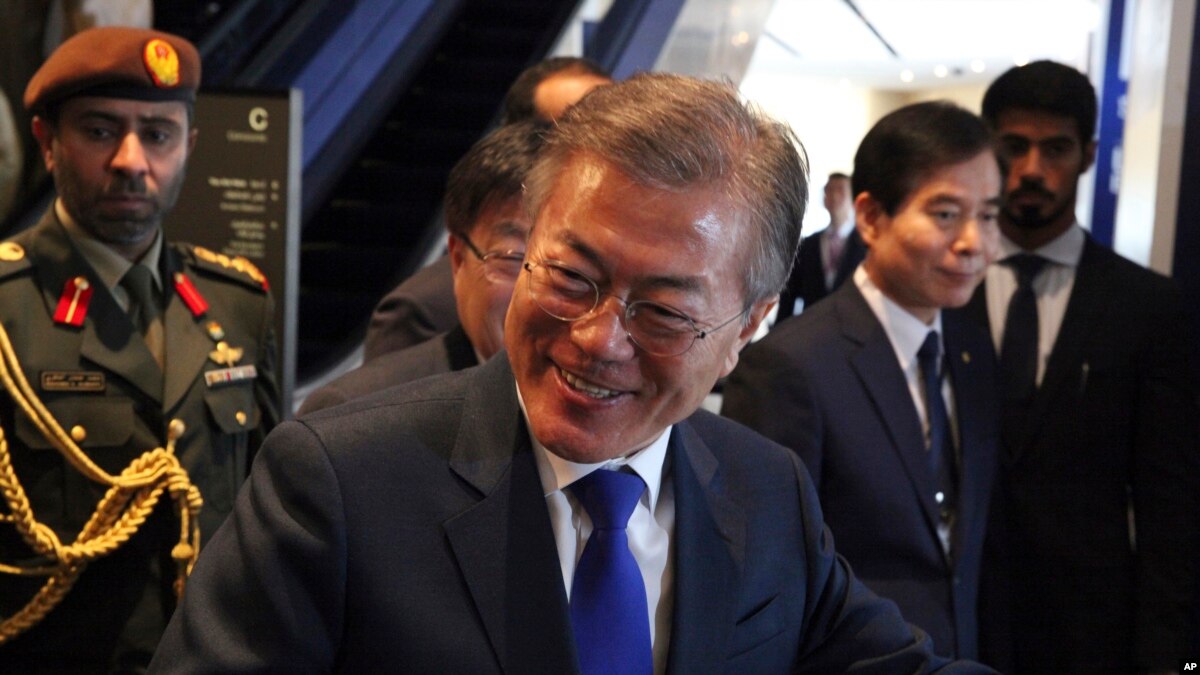
Wrapping up his first trip to the Mideast, South Korean President Moon Jae-in on Tuesday visited his nation's special forces training Emirati soldiers and pledged that peace on the Korean Peninsula would bring new business opportunities.
Moon's trip to the United Arab Emirates helped solidify Seoul's ties to a nation vital to its fossil fuel supplies. South Korea is also building its first nuclear power plant overseas in the Gulf Arab state, the first such facility on the Arabian Peninsula.
The four-day trip was carefully managed for Moon, who faced no questions from journalists in the UAE, which has a deal with Seoul reportedly guaranteeing the Korean military's automatic intervention in "an emergency."
On Tuesday, a statement from the South Korean presidency said Moon visited troops taking part in a program called "Akh," the Arabic word for "brother." The program, running since 2011, has Korean commandos train Emirati forces.
"The 'Akh' unit is a symbol of the defense cooperation between South Korea and the United Arab Emirates and will also serve as a stepping stone toward further developing relations between the countries so they would see each other as a 'brother nation,'" Moon said in the statement.
Moon later visited Dubai's ruler, Sheikh Mohammed bin Rashid Al Maktoum, and the Burj Khalifa, the world's tallest building. While at the tower, he gave a brief speech.
"South Korea is now building peace and prosperity on the Korean Peninsula. Right now is the best time to invest in South Korea," Moon said. "If we can stabilize peace in the Korean Peninsula, your investment will bear fruit and new business opportunities will arise."
Neither Moon nor Foreign Minister Kang Kyung-wha addressed the mysterious armored train that made a round trip from North Korea to Beijing on Tuesday.
Speculation about a visit to Beijing by North Korea's reclusive leader or another high-level Pyongyang official ran high Tuesday amid talk of preparations for a meeting between Kim Jong Un and President Donald Trump. Moon and Kim plan talks in April seeking to defuse tension over Pyongyang's nuclear weapons and missile program.
Read More South Korean President Visits his Troops Training Emiratis : https://ift.tt/2IX5E1EReport: Key Unofficial Bishop in Vatican-China Deal Detained
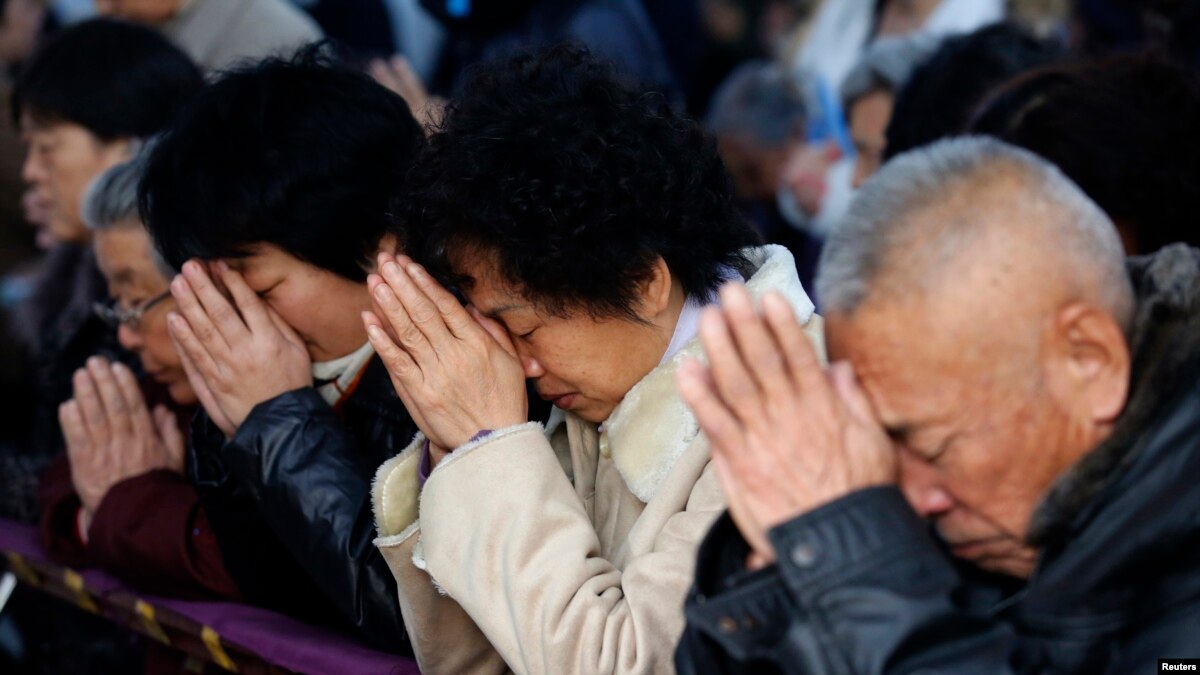
A bishop in China's underground church has reportedly been detained, just as the Vatican has been laying the groundwork for him to step aside as part of a historic deal with Beijing authorities over bishop nominations.
The AsiaNews agency, which closely covers the Catholic Church in China, said Bishop Vincent Guo Xijin and his chancellor were taken away late Monday, at the start of Holy Week. AsiaNews noted that Guo had disappeared for several weeks last year around Easter as well.
The Vatican has for years been seeking to unite China's underground and official churches to bring the more than 12 million Chinese Catholics ostensibly under the pope's wing for the first time since China and the Holy See severed relations nearly seven decades ago. Worship is officially allowed only in state-authorized churches outside the pope's authority.
Recently, the contours of a deal were hammered out under which the Vatican would recognize the seven remaining "illegitimate" bishops in China, who were consecrated without papal consent over the years, and ask two underground bishops to step aside and allow the official ones in Mindong and Shantou to become the de-facto Holy See-recognized bishops, the Vatican official said.
Guo agreed earlier this year to a Vatican request to step down and become the auxiliary bishop of Mindong to allow the state-appointed bishop, Monsignor Zhan Silu, to become the Vatican-recognized leader of the diocese, a Vatican official told The Associated Press recently.
The official, who spoke on condition of anonymity because he wasn't authorized to reveal the content of the negotiations, said the deal was by no means a "good" arrangement for the Holy See, since it placed limitations on its activities. But the official said it was the best the Holy See could get now, and likened it to sticking one's foot in a door to prevent the door from closing.
Going forward, the agreement calls for the pope to be able to "intervene" in future bishop nominations, which the official said amounted to a papal veto over names proposed by Beijing.
The Vatican spokesman didn't immediately comment Tuesday on Guo's reported detention. Police officials in the city of Fu'an, where Guo is based, as well as the city of Ningde, which oversees Fu'an, said they "did not know" anything about the reported detention, while calls to local officials who regulate religious affairs rang unanswered.
Vietnam Briefly Detains Dissident Singer After European Tour

Vietnamese singer and activist Do Nguyen Mai Khoi, an outspoken campaigner for free speech, was briefly detained at an airport in the capital Hanoi on Tuesday after flying home from Europe, her husband told Reuters.
Often dubbed a Vietnamese version of "Pussy Riot" or Lady Gaga because of her activism and provocative style, Mai Khoi was among dozens of dissidents on the watch-list of Communist-ruled Vietnam for her strong words against the system.
"When Mai Khoi landed at Noi Bai airport, at 9:15 am this morning, she texted me to say: 'Love, I just landed'," Mai Khoi's Australian husband, Benjamin Swanton, posted on her Facebook page, which has some 46,000 followers.
"At 9:39 am, she texted another message: 'Detained'." Swanton wrote.
Mai Khoi updated her Facebook page later in the day to say that she has been released after eight hours.
"Thank you everyone for your care. I'm now on a public bus back to Hanoi," Khoi said alongside a photo of herself she posted to the page.
Calls to authorities at Noi Bai International airport and Mai Khoi's mobile phone went unanswered. Her husband confirmed she had been released.
"We have been evicted from our house three times now," Swanton said.
At least 129 people are currently detained in Vietnam for criticizing or protesting against the government, according to a February report by Human Rights Watch.
A crackdown on dissent last year caused scores of activists to flee the country, according to Amnesty International.
Mai Khoi, who last year protested beside U.S. President Donald Trump's motorcade during his visit to Vietnam by holding up a poster which said "[Expletive] on you Trump", had not yet been subjected to a travel ban by the Vietnamese authorities.
The 34-year-old has courted controversy under a government which, despite overseeing sweeping economic reforms and growing openness to social change, does not tolerate criticism.
In 2016, she was one of a handful of activists who tried and failed to obtain a seat in the Communist party-dominated National Assembly. She met former U.S. president Barack Obama during his visit in Vietnam in 2015.
The title of her new album "Bat Dong", which she had been in Europe to promote, translates to "Disagreement". Her song "Please, sir" pleads with the leader of the Communist Party to allow ordinary Vietnamese people to sing, publish, share and travel freely.
Read More Vietnam Briefly Detains Dissident Singer After European Tour : https://ift.tt/2Gw3zLHForeign Affairs Minister: Bangladesh Sees Little Foreign Funds for Rohingya Refugee Island
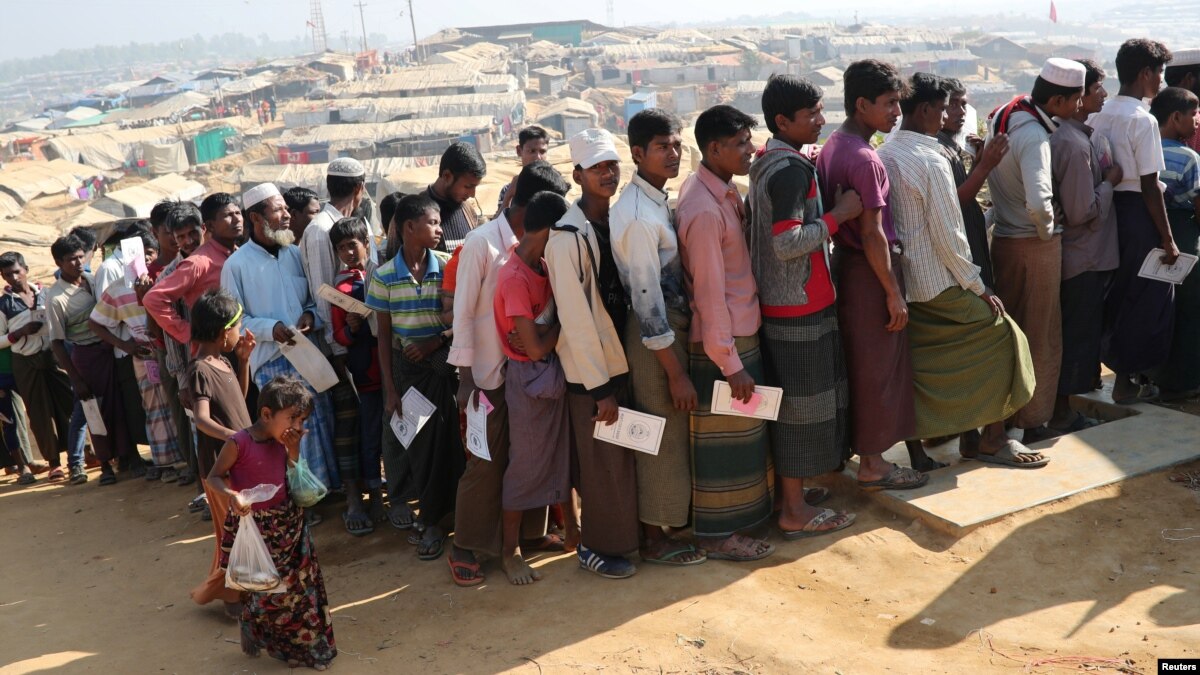
Bangladesh is not expecting much help from foreign donors as it forges ahead with plans to relocate 100,000 Rohingya refugees to an uninhabited island, an undertaking that does not yet have a timeline, a state minister said in an interview.
The minister of state for foreign affairs, Mohammed Shahriar Alam, told Reuters on Friday that Bangladesh was paying the entire roughly $280 million to build homes and fortify the muddy island in the Bay of Bengal from cyclones, and that it was mulling a formal request for international funds.
No refugees who fled a military crackdown in Myanmar would be moved there against their will, he added.
Some 700,000 Rohingya Muslims crossed the border from Myanmar's Rakhine state since August, and are in cramped camps at Cox's Bazar. Because a repatriation deal between the neighboring countries has been delayed, Bangladesh aims to prepare new homes on the nearby island, called Bhasan Char, before the onset of seasonal monsoon rains that could come in late April.
"We don't have a timeline because it's a lot of money," Alam said at Bangladesh's United Nations office in New York. "We are so far building it with our own finances. I am not very hopeful about how much funds the international community will be able to raise."
The latest wave of refugees joined about 300,000 Rohingya already in Bangladesh, one of the world's poorest and most crowded countries, who fled previous bouts of violence. A U.N. coordination branch has separately requested $951 million for immediate relief.
Alam pointed to blueprints of construction on the island 30 km (21 miles) from the mainland, and said one plan could be to bring potential donors there.
He brushed off as "misunderstandings" concerns raised by humanitarian groups such as Amnesty International that the silt island was vulnerable to flooding. "Some people raised concerns about Bhasan Char (but) there is absolutely no reason to be concerned because we are building an embankment," he said.
Bangladesh sees the island as a temporary arrangement for refugees but has given conflicting signals on how much freedom they would have to leave once there.
Alam said Bangladesh shared the building designs with the Organisation of Islamic Cooperation, which suggested "we engage people, countries and organizations to come help and contribute" to the cost. "We are yet to do it," the minister said. "We haven't decided on that."
Read More Foreign Affairs Minister: Bangladesh Sees Little Foreign Funds for Rohingya Refugee Island : https://ift.tt/2GdjxqCAncient Musical Treasures from Central China
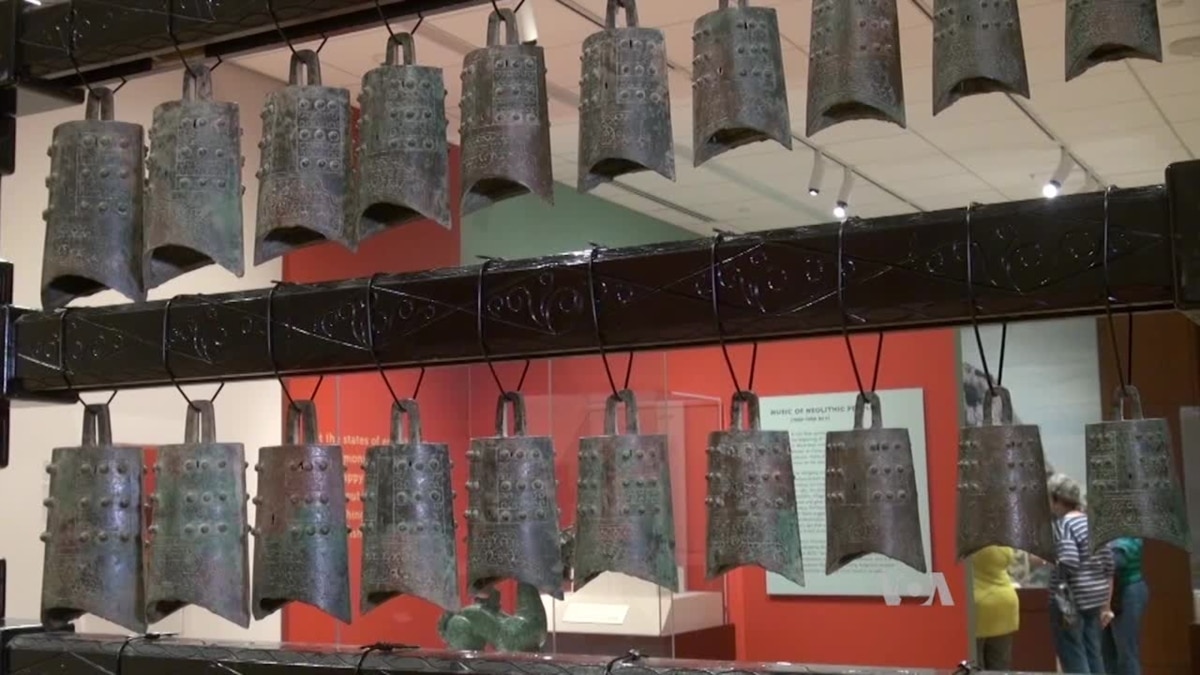
Extremely rare Chinese musical instruments and works of art dating from 9,000 years ago are on display for the first time in the U.S. The archaeological treasures, mostly found in tombs in central China, give viewers a glimpse of the musical life of the ancient societies. VOA’s June Soh takes us to the exhibit at the Musical Instrument Museum in Phoenix, Arizona.
Monday, March 26, 2018
US Slams Pakistani Firms with Sanctions for Nuclear Trade
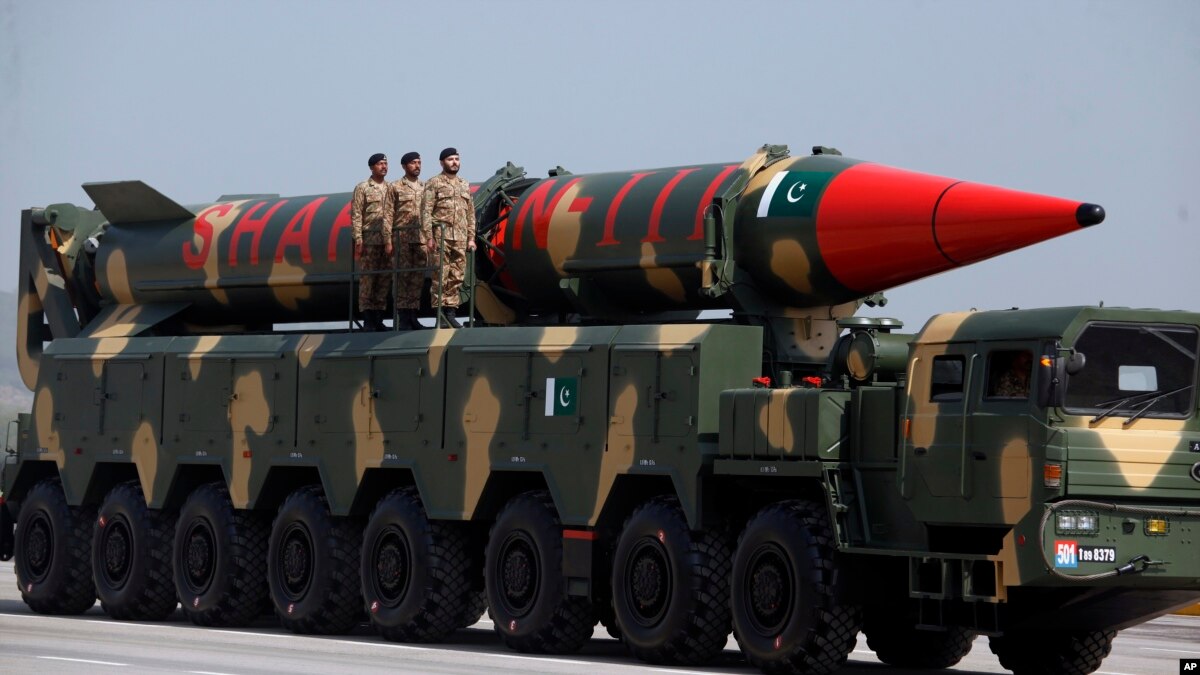
The United States is imposing sanctions on seven Pakistani companies for alleged links to the nuclear trade.
The Commerce Department's Bureau of Industry and Security (BIC) placed 23 companies —15 from Sudan and one from Singapore, in addition to the seven from Pakistan — on its Entity List.
The Entity List contains companies the U.S. determines are "acting contrary to the national security or foreign policy interests of the United States," according to BIC's website. Companies placed on the list need special licenses to do business in the United States.
A U.S. State Department spokesperson told VOA that the U.S. regularly adds entities to the list.
"It is not country-specific. Entities are looked at on a case-by-case basis, irrespective of national affiliation, and are added based on whether they operate counter to U.S. national security interests," the spokesperson said.
VOA tried to talk to some of the companies on the list, but they would not comment on their designation.
Pakistan said it would "seek more information" from the U.S. and these companies to better understand the circumstances which led to its listing.
A statement released by Pakistan's Ministry of Foreign Affairs said, "Pakistan believes that there should be no undue restrictions on the access to dual-use items and technologies for peaceful and legitimate purposes. Pakistan has always been transparent and willing to engage with the suppliers of the dual-use items."
Dual-use technologies have both civilian and possible military uses.
The sanctions could potentially hurt Pakistan's chances to join the 48-member Nuclear Suppliers Group (NSG). Pakistan wants to join the 48 countries who are members of the NSG, but the United States and some of its European allies oppose the move.
The NSG is dedicated to curbing nuclear arms proliferation by controlling the export and re-transfer of materials that could foster nuclear weapons development.
Nuclear-armed Pakistan applied to join the NSG in 2016, but has made little progress. The U.S. has been concerned about Pakistan's development of new nuclear weapons systems, including small tactical nuclear weapons, and has been trying to persuade Islamabad to make a unilateral declaration of "restraint."
Pakistani denials
Pakistani officials have been accused of handing over nuclear secrets to North Korea. The government has denied the accusations, though Pakistan has a poor record on nuclear proliferation.
Pakistan's Foreign Office said the nation's "efforts in the area of export controls and nonproliferation, as well as nuclear safety and security, are well known. Pakistan and the U.S. have a history of cooperation in these areas."
The announcement of sanctions has come as relations between Pakistan and the United States are at a low point. The United States accuses Pakistan of helping militant groups that attack the U.S. and its allied forces across the border in Afghanistan — a claim Pakistan denies.
VOA's Cindy S. Spang contributed to this report.
Read More US Slams Pakistani Firms with Sanctions for Nuclear Trade : https://ift.tt/2GcZ995Kim Jong Un Reportedly on Visit to China
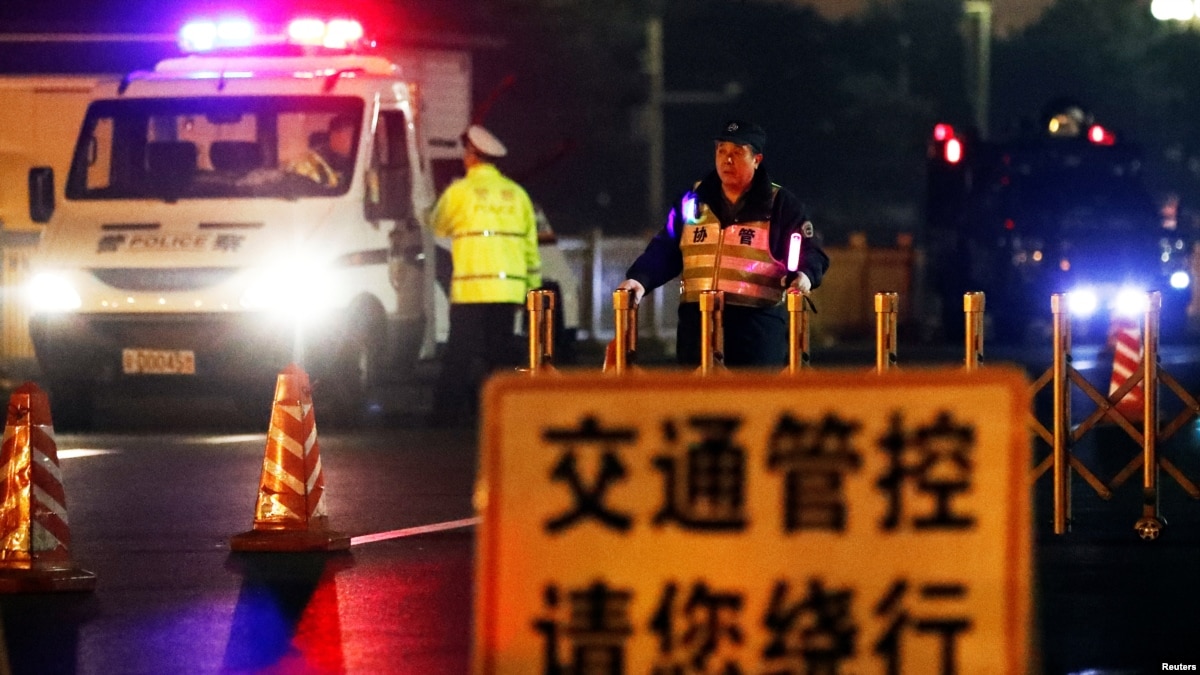
North Korean leader Kim Jong Un is reportedly in China on an unannounced visit, Bloomberg News reported Monday, citing three unnamed sources.
There was no official statement on the report, which was not covered by Chinese or North Korean state media. If Kim is in China, it would be his first foreign trip since taking power in 2011.
It would also mark a significant diplomatic development ahead of a potential meeting between Kim and U.S. President Donald Trump.
Footage from Japanese TV showed an old-style green train at a Beijing train station similar to the one used by Kim's father, Kim Jong Il.
Journalists in Beijing also reported seeing a military honor guard welcoming a convoy of vehicles arriving at the Diaoyutai State Guesthouse, where top North Korean officials have stayed during a visit to China.
There were also reports of heavy security along Beijing's main east-west thoroughfare, Changan Avenue. Police also cleared all tourists out of Tiananmen Square, which usually only happens when Chinese leaders are meeting with visiting heads of state in the Great Hall of the People.
Read More Kim Jong Un Reportedly on Visit to China : https://ift.tt/2Grf4EdChina Urges WTO Members: Put US Tariff 'Beast Back in the Cage'
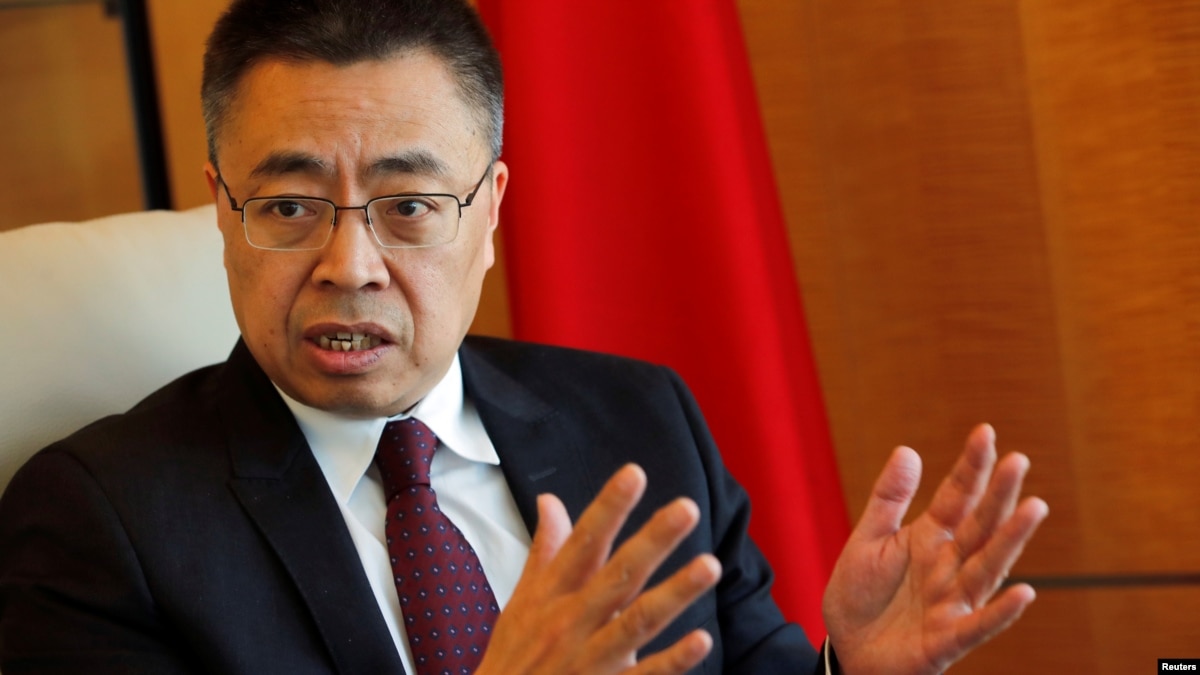
China called on World Trade Organization members on Monday to unite to prevent the United States "wrecking" the WTO, and it urged them to oppose U.S. President Donald Trump's tariffs targeting China's alleged theft of intellectual property.
Trump's trade policy, labeled "medieval" by former WTO head Pascal Lamy, has inflamed international opinion this year.
While a U.S. veto on new WTO judges jams up legal disputes in Geneva, Trump has slapped tariffs on solar panels, cited national security to restrict steel and aluminum imports, and demanded that China slash $100 billion from its U.S. trade surplus.
China's WTO ambassador Zhang Xiangchen said the latest U.S. move, linked to alleged theft of U.S. innovation, was fundamentally incompatible with the WTO.
"In the open sea, if the boat capsizes, no one is safe from drowning. We shouldn't stay put watching someone wrecking the boat. The WTO is under siege and all of us should lock arms to defend it," he told a WTO meeting.
Washington needed WTO authorization for the intellectual property tariffs, he said.
"WTO members should jointly ... lock this beast back into the cage of the WTO rules," Zhang said.
A U.S. diplomat at the meeting said Chinese technology transfer policies cost U.S. businesses billions of dollars annually, and noted that the United States had filed a WTO complaint accusing China of allowing patent theft and discriminating against foreign technology holders.
China is alone in facing that allegation, but it is not alone in its opposition to Trump's worldwide tariffs on steel and aluminum, and on Monday it became the first country to launch a WTO claim of compensation for lost metals exports.
Steel bar
The U.S. tariffs on steel and aluminum imports have drawn widespread criticism and sparked fears that metals markets elsewhere will be oversupplied after the United States slams its door.
The EU served notice on Monday that it could also introduce protective steel tariffs to stop the supply surge, although its study of the situation could take nine months.
It and four other U.S. allies have temporary exemptions from the tariffs. South Korea became the first to get an indefinite waiver after agreeing to cut steel exports by 30 percent of the past three years' average.
That worries steelmakers in Japan, which is not exempt.
"We are concerned that the new tariffs are being used by the U.S. as a card for wider trade negotiation deals," said Japan Iron and Steel Federation Chairman Kosei Shindo.
The steel tariffs are based on a claim to "national security," a justification that the United States says provides immunity to a legal challenge at the World Trade Organization.
The United States has already submitted an opinion in a WTO dispute between Russia and Ukraine, saying that national security is "self-judging" — a stance that puts it on the side of Russia and at odds with Ukraine and the EU.
Others insist a national security claim must rest on hard evidence. China said many countries saw no such threat for the United States, where domestic steel production covered military needs 32 times over, or more if one counted exemptions given "temporarily and likely permanently" to U.S. allies.
Russian steelmaker Severstal filed a New York lawsuit last Thursday, arguing that the tariffs were unlawful and that the exemptions revealed the "specious" national security claim.
"The president's public statements on these exemptions lay bare that not only was the Steel Proclamation a political move, but the true rationale was simply that of seeking leverage in other trade negotiations," Severstal's lawsuit says.
A spokeswoman said Severstal strongly believed the tariffs violated international regulations and U.S. law, and the national security claim was unfounded.
Read More China Urges WTO Members: Put US Tariff 'Beast Back in the Cage' : https://ift.tt/2DX3OKgFishing Crackdown Nets Benefits for Indonesia

Indonesia's strict crackdown on illegal foreign fishing boats is paying off, according to new research.
Kicking out interlopers has relieved pressure on the country's overtaxed fisheries at no cost to its domestic industry, the study says, and may point the way for other countries to make their fisheries more sustainable.
About a third of the world's commercial fish populations are overfished, according to the U.N. Food and Agriculture Organization.
One study estimated that restoring depleted fisheries would ultimately generate $53 billion in additional annual profits.
But reducing overfishing usually means putting unpopular restrictions on local fishers to allow populations to recover.
"Telling fishers to stop fishing for a few months or years would be something that's not that realistic," said study lead author Ren Cabral at the University of California, Santa Barbara.
Violators will be sunk
But in Indonesia, as in many developing countries, locals are only part of the equation. Many foreign vessels fished the country's waters, often illegally.
The study notes that the country lost an estimated $4 billion per year to illegal fishing before 2014, when the government banned foreign fishing vessels in its waters.
Since then, more than 300 ships found violating the ban were evacuated and sunk.
Cabral and colleagues wanted to see what the impact had been.
Using government registries, vessel tracking data and satellite imagery, they saw a drop of more than 90 percent in the time foreign vessels spent in Indonesian waters. That meant at least a quarter less fishing activity overall.
"That's huge," Cabral said.
The study is published in the journal Nature Ecology & Evolution.
"You have a large benefit, but the cost to local people is zero," said marine biologist Boris Worm at Dalhousie University, who was not involved with this research.
Do this first
"This paper argues, I think convincingly, that this is the first thing you should do: if you want to fix fisheries in your country, first, kick out the fishers that don't need to be there," he added.
Worm notes that the study could only account for large vessels that are required to carry tracking equipment. It could not assess what smaller vessels are doing.
"You're really only seeing the tip of the iceberg," he said. "The tip of the iceberg is getting smaller, which is good in this case. But there are a whole lot of problems below."
With foreign fishing boats out of the way, local fishers are filling in the gap. If not managed properly, they could undo the benefits of fighting illegal fishing, Cabral said.
If Indonesia continues to ban illegal fishing and also manages local fishing sustainably, the study estimates profits would be 12 percent higher in 2035 compared to today.
On the other hand, if local fishing remains unchanged, 2035 profits would drop by half as fish populations declined.
"The next step would be Indonesia managing their local fishing effort," Cabral added. "If they do that, they can definitely get the benefit from their policies."
Read More Fishing Crackdown Nets Benefits for Indonesia : https://ift.tt/2GwfiKbReports: Special N. Korea Train Arrives in Beijing Under Guard
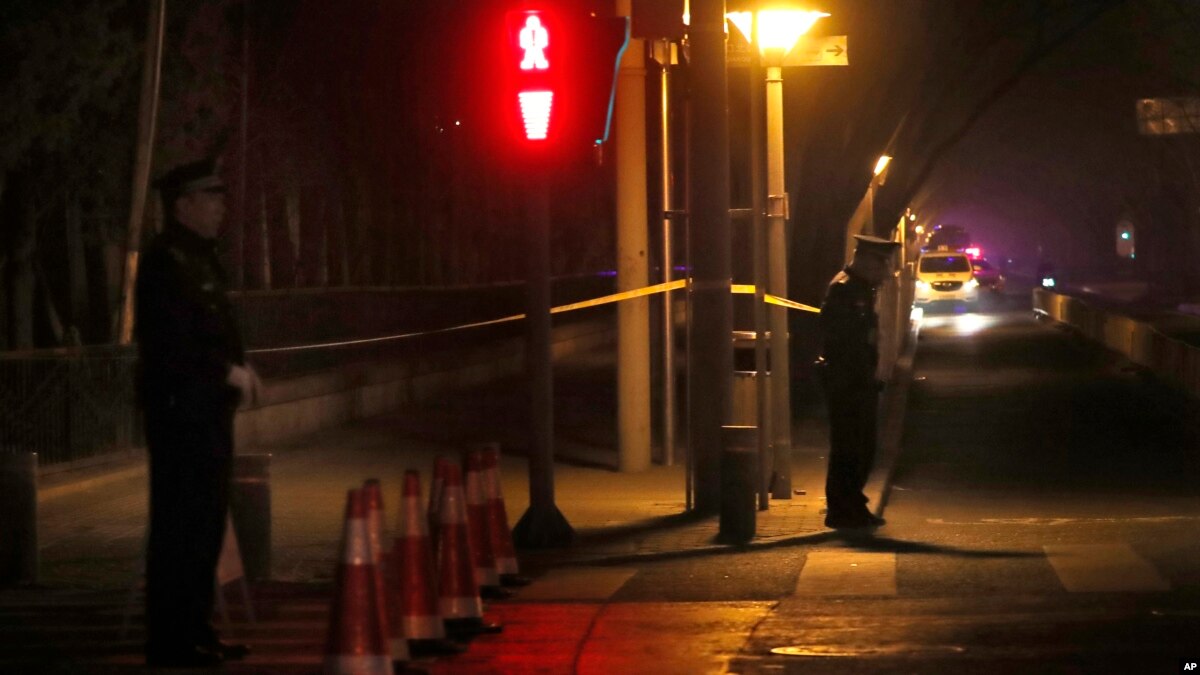
Japanese media reports said a special North Korean train arrived in Beijing under unusually heavy security on Monday, suggesting a senior delegation might have been aboard.
A spokeswoman for the Chinese Foreign Ministry said she was not aware of the situation and had no further comment. North Korea's state-run media had no reports of a delegation traveling to China.
Japanese television network NTV and public broadcaster NHK reported the arrival of the train and said the heavy security in the city suggested a senior official was aboard.
The reports sparked speculation that leader Kim Jong Un might have been aboard the train. Kim is expected to have a summit meeting with South Korean President Moon Jae-in in late April and with U.S. President Donald Trump by May.
There had been no word of Kim planning a summit with Beijing, however. China has been one of North Korea's most important allies, but relations have grown chilly because of Kim's development of nuclear weapons and long-range missiles.
Heavy security was reported at the Friendship Bridge before the train passed from North Korea to China, and there were reports of it passing through several stations on the way from North Korea to Beijing. The NTV network said the green and yellow train appears very similar to the one that former North Korean leader Kim Jong Il, Kim Jong Un's late father, took to Beijing in 2011 and has 21 cars.
A video that aired on NTV also showed a motorcade of black limousines waiting at the train station and rows of Chinese soldiers marching on what appeared to be a train platform. The video did not show anyone getting off the train.
Read More Reports: Special N. Korea Train Arrives in Beijing Under Guard : https://ift.tt/2pIvCNxNew Push Sought for Myanmar-India Econ Links
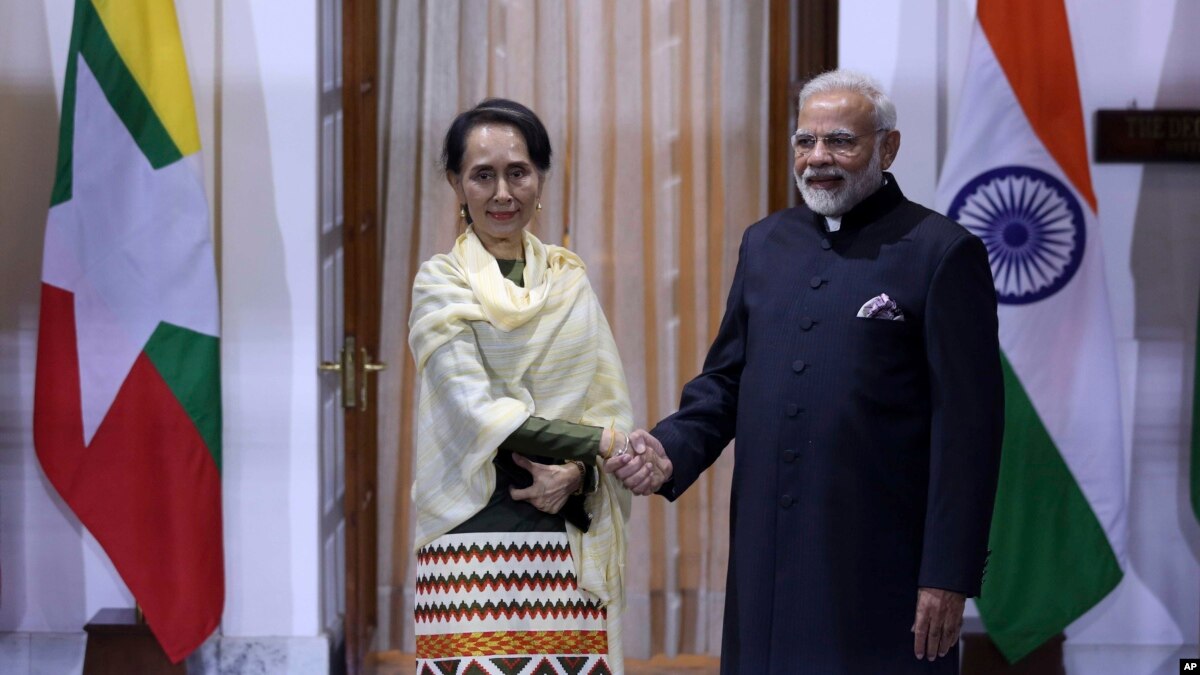
A delegation of Indian CEOs visiting Myanmar and the launch of a new India-Myanmar business chamber in Yangon have sought to inject life into stagnant economic ties between the two neighboring countries.
Since 2011, when the military junta launched political and economic reforms, Myanmar’s future prosperity has been predicated on its strategic location between India and China, two giant economies and population centers.
Yet, while China has poured billions into mega infrastructure and energy projects and continues to dominate trade with Myanmar, flagship Indian infrastructure projects in western Myanmar have run behind schedule and over budget.
Bilateral trade — topped by beans and pulses from Myanmar and sugar and medicines from India — has hovered around the $2 billion mark since 2011, less than a fifth of the trade volume with China and falling well below targets set by a Joint Trade Committee. Though Myanmar’s fourth largest trade partner, India is only its eleventh largest investor.
At an India-Myanmar Business Conclave on March 22 in Yangon, Myanmar’s commercial capital, Indian company directors mingled with Myanmar business leaders while senior government officials mixed frank acknowledgements of underperformance with affirmations of Myanmar’s potential.
India’s Minister of Commerce and Industry C.R. Chaudhary said, “Myanmar is our gateway to Southeast Asia,” recalling two pillars of India’s foreign policy, Act East and Neighborhood First, and stressed the need to “remove trade barriers.”
Next at the podium, Myanmar’s Deputy Minister for Commerce Aung Htoo, talked of boosting India-Myanmar trade to 5 billion over the next three years, as part of a Myanmar government plan made in 2016 to triple all exports by 2020.
Taking time
Speaking to VOA on the sidelines, Gaurav Manghnani, the Myanmar country head of Credera, a trading and investment company with roots in Myanmar’s Indian diaspora, said he didn’t share in the growing pessimism of other foreign investors over the slow pace of economic reform in Myanmar.
“If they’re taking time to get the reforms underway and making sure these reforms are here to stay and forward looking, they won’t make the mistakes other countries have,” he said, citing the lengthy delay in the implementation of the new Companies Act, a law that allows for larger foreign stakes in local companies, as “the best thing that could happen.”
He acknowledged that India-Myanmar trade “has been stagnant at this level for a while now. To push it beyond the current volume of 2 billion requires something different to be done.”
Yet, beyond the formal launching of the new India-Myanmar Chamber of Commerce — aimed at speeding up interaction between Indian and Myanmar businessmen and advising on tie-ups — the March 22 conclave did not feature announcements of new investments or major breakthroughs in deepening ties.
Indian Ambassador to Myanmar Vikram Misri said that work was nearing the “final stage” in two separate infrastructure projects being built on Indian government grants.
These are a section of the Trilateral Highway, running from northeast India across Myanmar to Thailand, and the Kaladan Multi-Modal Transit Transport Project, linking India’s eastern seaport of Kolkata to its landlocked northeastern states via ports, inland water terminals and roads in Myanmar’s Rakhine and Chin states.
Speaking separately to VOA, the ambassador said he expected both projects, conceived respectively in 2002 and 2008, to be finished in 2021. Meanwhile, agreements on the legal movement of people and vehicles across the land border are still under negotiation.
Protectionism
One obstacle to closer ties is the measures taken by India to prop up its own market. In August last year, when monsoon rains produced a bumper harvest in India, causing local prices to plummet, the government imposed quotas on Myanmar beans and pulses, which account for more than 75 percent of Myanmar’s exports to India.
Myanmar’s Deputy Commerce Minister said at the conclave, “Due to recent restrictions by quota from India, Myanmar farmers have suffered a lot this year. I’d like to ask the Government of India to increase the quotas for Myanmar pulses and beans.”
Ambassador Misri defended the move to VOA, saying, “It’s not protectionism for the sake of being protectionist. It is something that is in fact foreseen under the WTO mechanisms in terms of protecting against surges and adverse market conditions.”
“It would have been a calamitous situation for imports to have continued and for the market price to fall even further,” he said, adding, “The longer term answer to this is a diversification of the trade basket that Myanmar has with regard to India.”
Vikram Nehru, an economist resident at the John Hopkins University School of Advanced International Studies, told VOA he was skeptical Indian investment in Myanmar would really take off.
“India is a very inward looking economy. It’s one of the most protected markets in the world. India is not part of the global or regional value chain, unlike China,” he said.
Most Indian investments abroad, he explained, “are designed to tap into markets,” and the Myanmar market remains comparatively tiny.
“Why would Indian firms be interested, unless they were really small firms? They’d much rather set up in the Indian market, of 1.3 billion people, with a per capita income that is higher than Myanmar’s,” he said.
Read More New Push Sought for Myanmar-India Econ Links : https://ift.tt/2ISFzALMalaysia Poised to Give 10 Years in Jail for Fake News
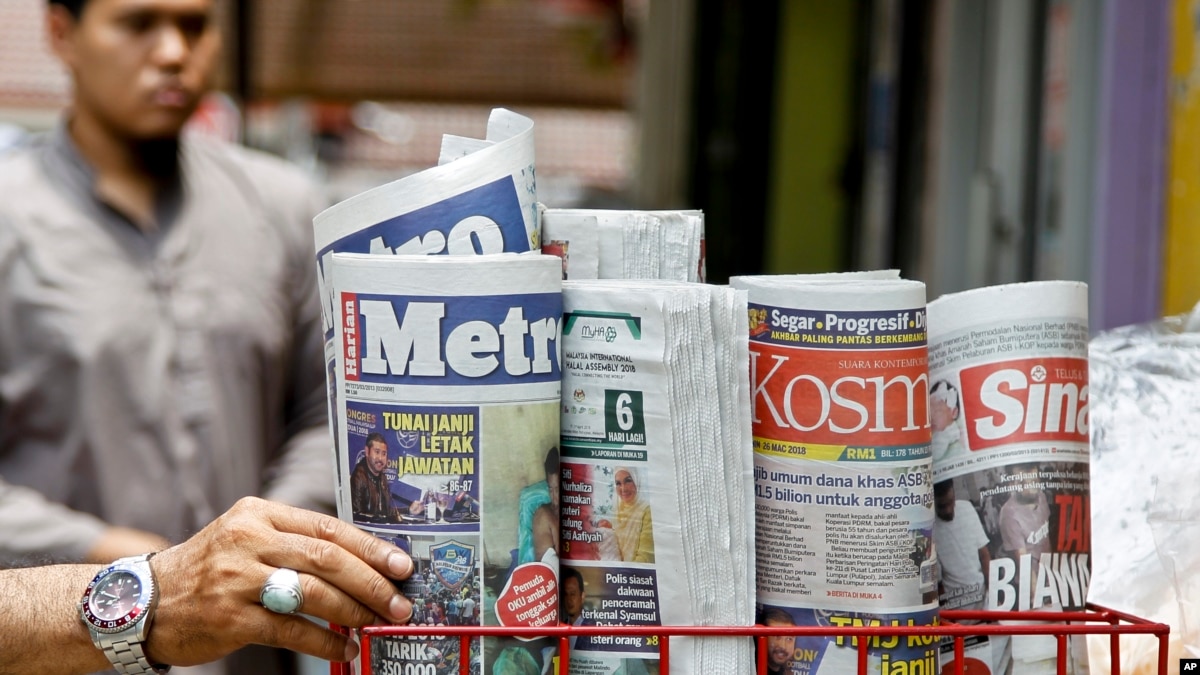
Malaysia's government on Monday proposed new legislation to outlaw fake news with a 10-year jail term for offenders, a move slammed by critics as a draconian bid to crack down on dissent ahead of a general election.
Prime Minister Najib Razak has been dogged by a multibillion-dollar corruption scandal involving an indebted state fund, and rights activists fear the new law could be used to criminalize reports on government misconduct and critical opinions. A general election must be held by August but is widely expected in the next few weeks.
The anti-fake news bill, tabled for parliamentary approval Monday, calls for penalizing those who create, offer, circulate, print or publish fake news or publications containing fake news with a 10-year jail term, a fine of up to 500,000 ringgit ($128,000) or both.
The bill defines fake news as "any news, information, data and reports which is, or are, wholly or partly false whether in the form of features, visuals or audio recordings or in any other form capable of suggesting words or ideas." It covers all mediums and extends to even foreigners outside Malaysia as long as Malaysia or its citizens are affected.
"This is an attack on the press and an attempt to instill fear among the (people)" before the general election, opposition lawmaker Ong Kian Ming tweeted.
Government officials have said the law is needed to protect public harmony and national security. They have accused the opposition coalition of using fake news as a key weapon to win votes and warned that any news on the indebted 1MDB state fund that had not been verified by the government is fake.
The U.S. and several other countries are investigating allegations of cross-border embezzlement and money laundering at 1MDB, which was set up and previously led by Prime Minister Najib to promote economic development, but which accumulated billions in debt. The U.S. Justice Department says at least $4.5 billion was stolen from 1MDB by associates of Najib, and it is working to seize $1.7 billion taken from the fund to buy assets in the U.S., potentially its largest asset seizure ever.
Najib, who denies any wrongdoing, has fired critics in his government and muzzled the media since the corruption scandal erupted three years ago.
Support for Najib's ruling coalition has dwindled in the last two elections. In 2013, it lost the popular vote for the first time to the opposition. Yet analysts say Najib is expected to win a third term due to infighting in the opposition, unfavorable electoral boundary changes and strong support for the government among rural ethnic Malays.
Critics said the anti-fake news bill will add to a range of repressive laws, including a sedition law, a stiff press and publications act, an official secrets act and a security act, that have been used against critics, violated freedom of expression and undermined media freedom. A coalition of human rights and civic groups also expressed concern that the government was rushing through the legislation, without consulting key stakeholders and releasing details in advance for public scrutiny.
Read More Malaysia Poised to Give 10 Years in Jail for Fake News : https://ift.tt/2Gr8NrXSearch
Featured Post
Rubin Museum, Haven for Asian Art, to Close After 20 Years - The New York Times
It is the first major art museum in New York to close within recent memory. The museum had financial challenges and has faced accusations o...

Postingan Populer
-
asianpostmedia.blogspot.com Ex-CEO John Clendening slams his former employer for allegedly rewriting history to fend off attack from activi...
-
Merdeka.com - Tahun lalu, organisasi teroris ISIS yang menguasai sebagian wilayah di Suriah dan Irak berhasil digempur. ISIS kehilangan wi...
-
asianpostmedia.blogspot.com With restaurant closures and stay-at-home guidelines, you are likely cooking at home a lot more than you are us...